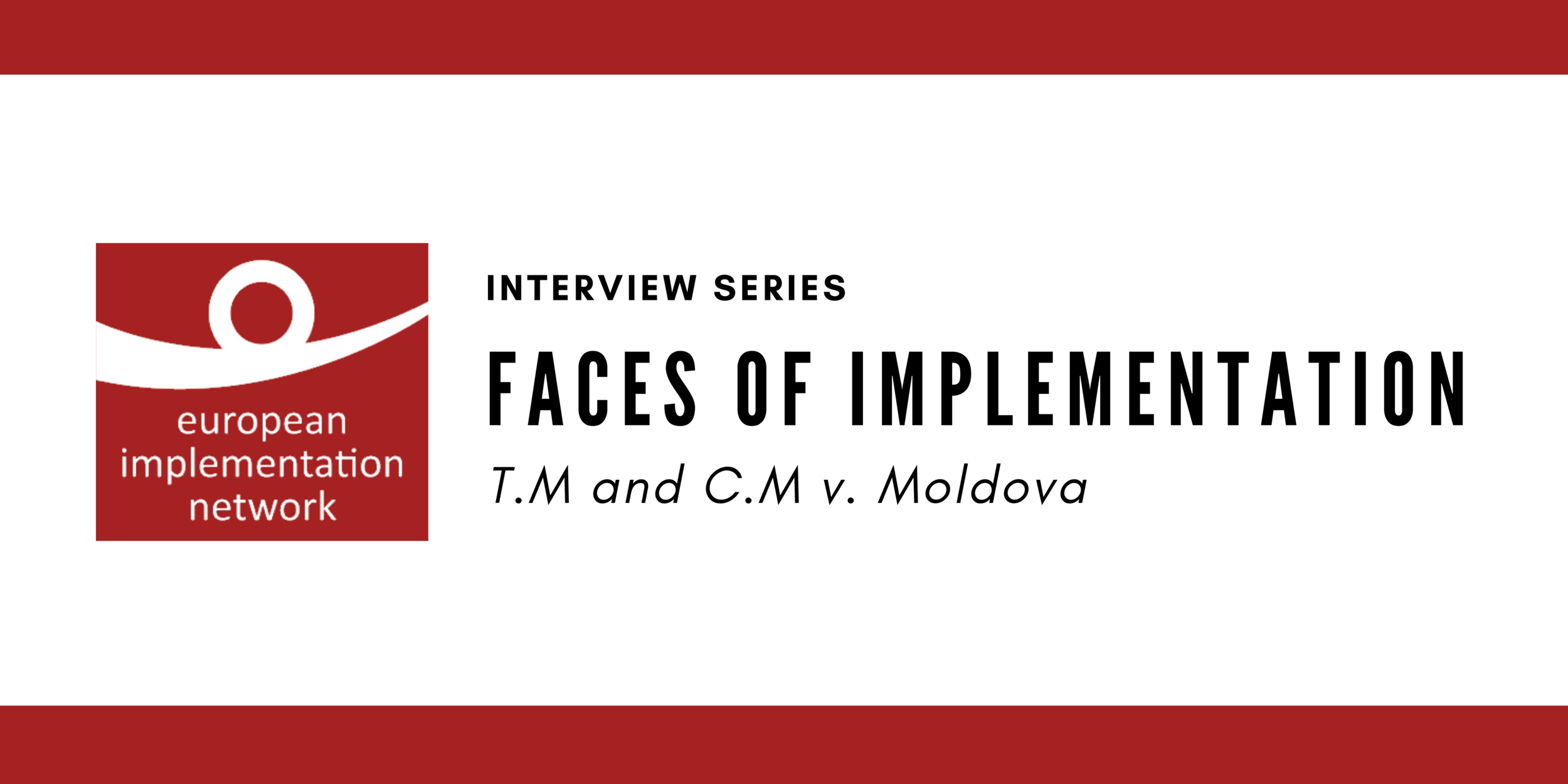New Report: Implementing Judgments Of The European Court of Human Rights Concerning Domestic and Gender-Based Violence
/EIN has released a new publication titled “Implementing Judgments of The European Court of Human Rights Concerning Domestic and Gender-Based Violence” on May 17th 2022. The project was launched last year and is supported by Luxembourg’s Ministry of Foreign and European Affairs.
Domestic and gender-based violence is a common and widespread problem across the Council of Europe region and beyond. Globally, 30% of women aged 15 and older have been subjected to physical and/or sexual intimate partner violence, non-partner sexual violence, or both at least once in their lifetime.
We highlight the value of the European Court of Human Rights judgments, and the potential that pending cases have in pushing governments to carry out wide-ranging reforms to combat and prevent domestic and gender-based violence. However, the judgments are only the beginning of the road to justice – they require implementation at the national level for rights to become a reality. Implementing human rights judgments requires individual measures, providing justice for the victim, and general measures requiring reforms in law/practices that prevent similar violations from recurring. Reforms to implement general measures are essential to address the factors contributing to the perpetuation of domestic and gender-based violence.
The key to the effective implementation of ECtHR judgments concerning domestic and gender-based violence is both proactive and good faith engagement of all key stakeholders in the implementation process. If national authorities, the Council of Europe, and civil society take an active role in implementation, these judgments can turn into rights for all.
We thank Luxembourg’s Ministry of Foreign and European Affairs for their support, without which we would not be able to make this report happen.
We hope that this report will highlight the potential of ECtHR judgments in ensuring that these judgments lead to change through training and assisting civil society from across Europe.
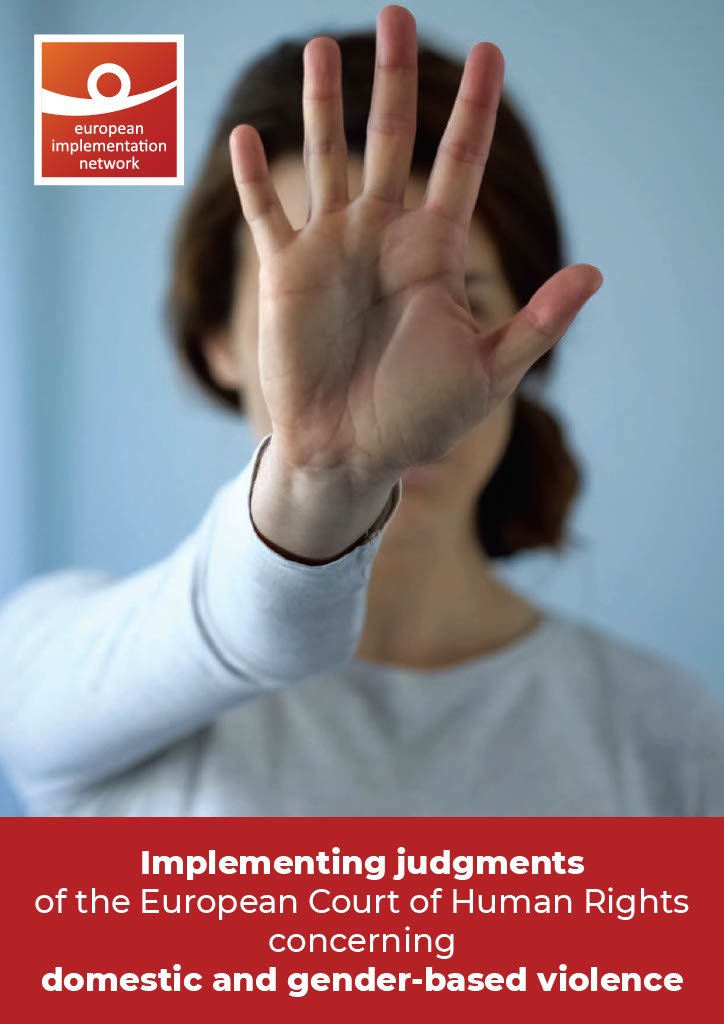
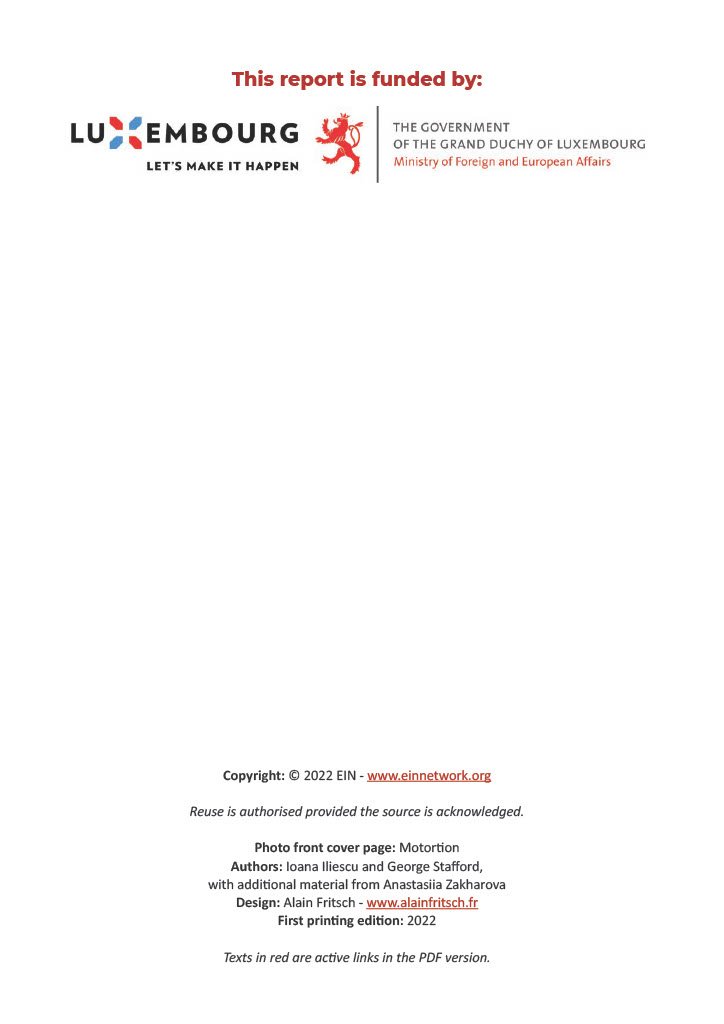
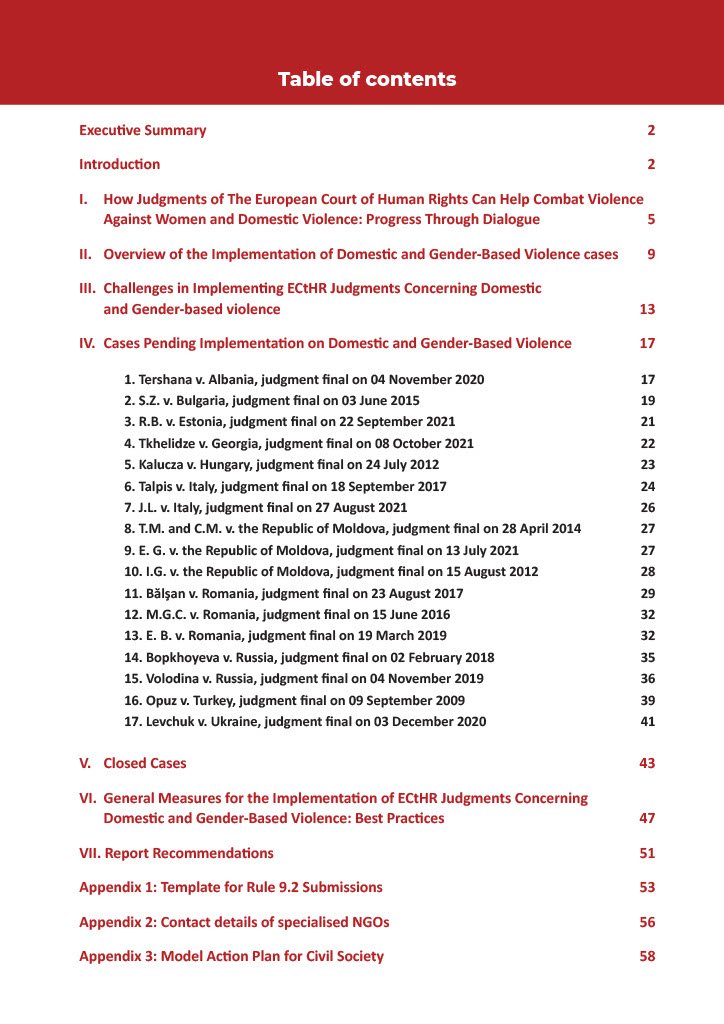
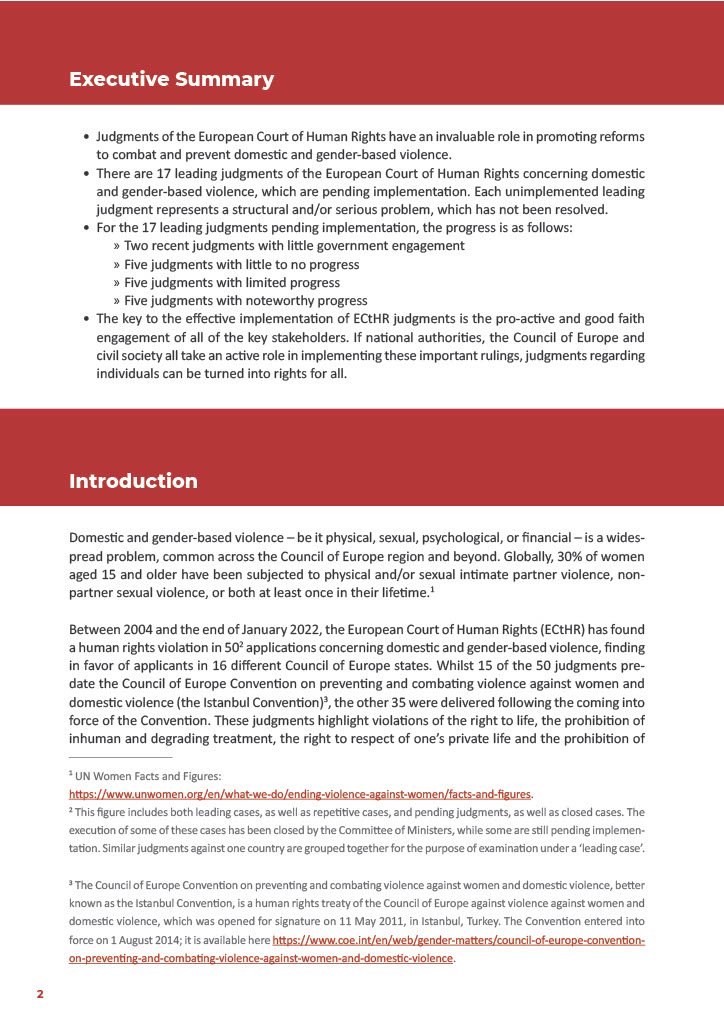
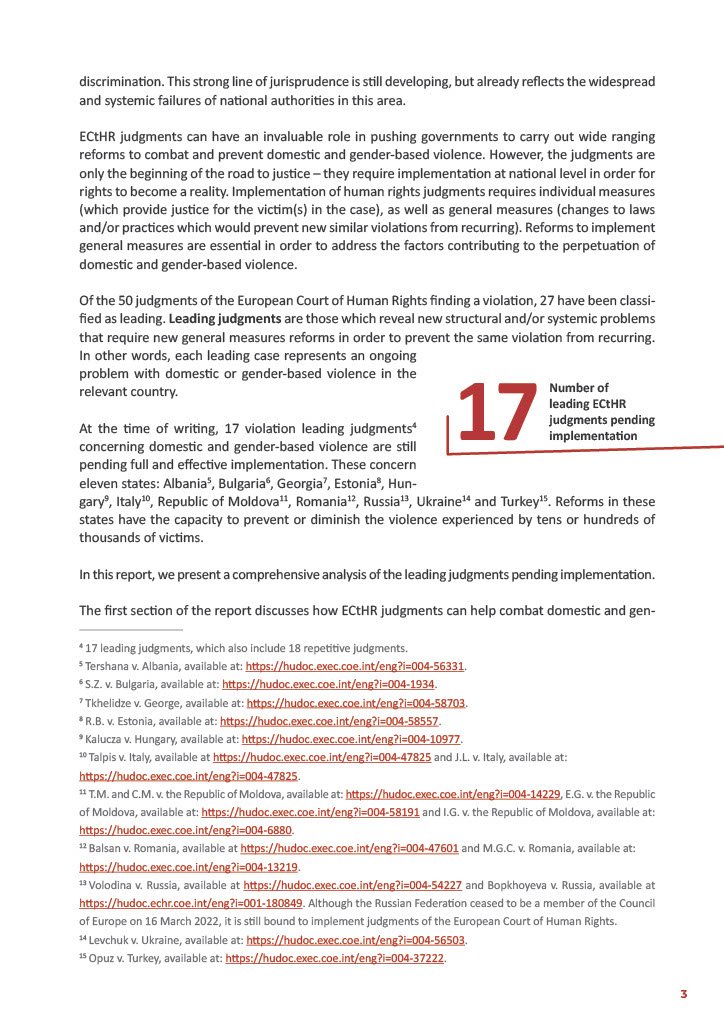
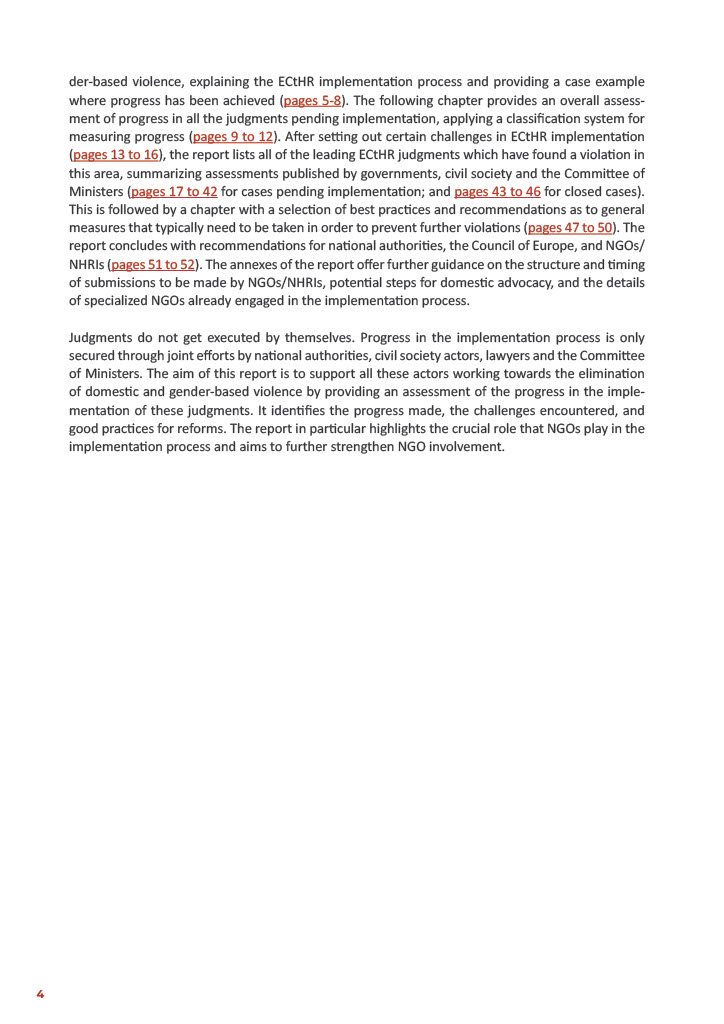
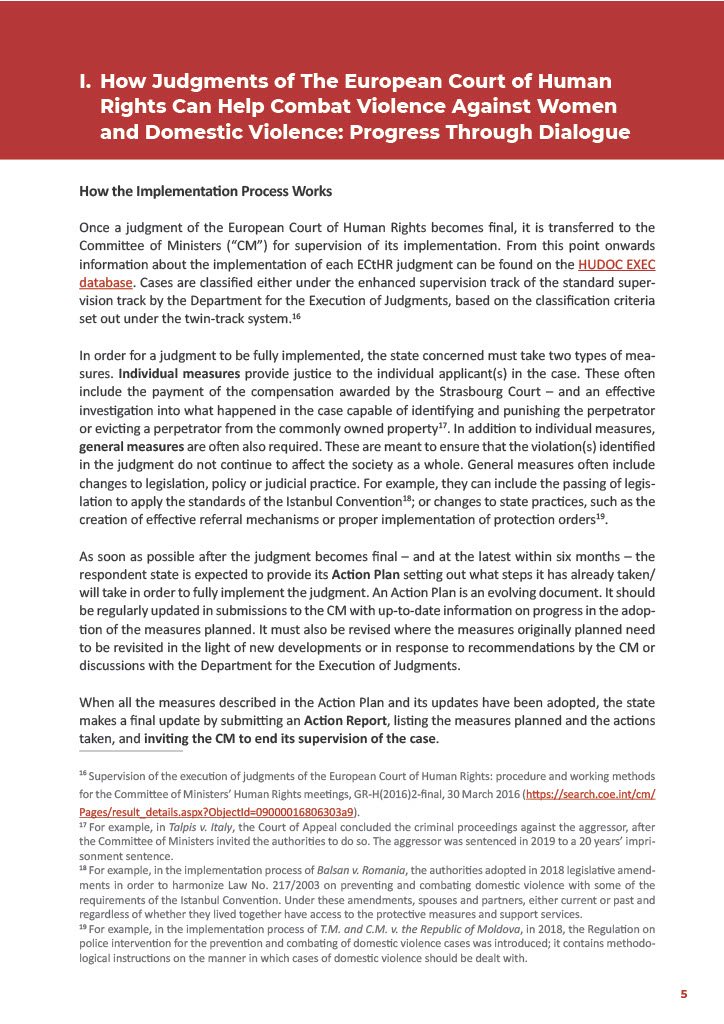
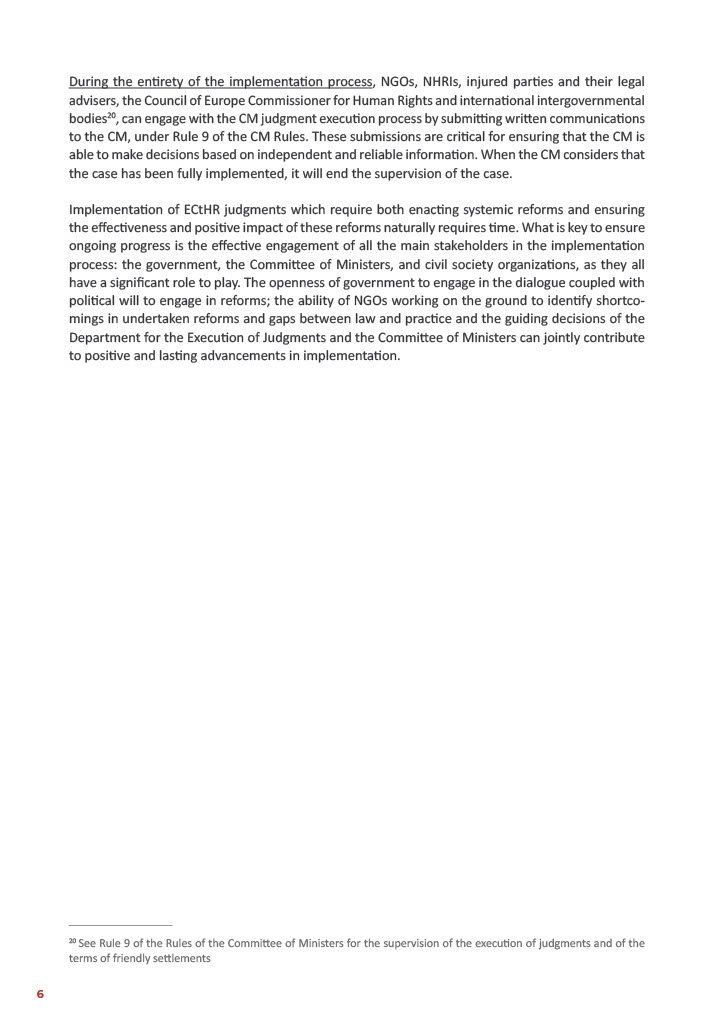
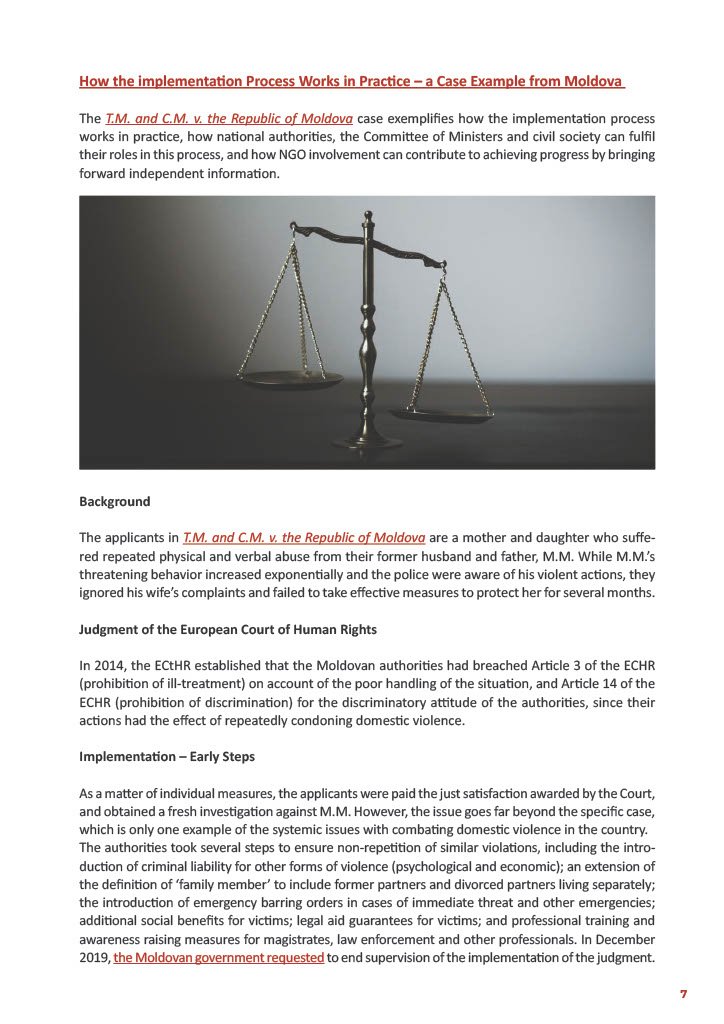
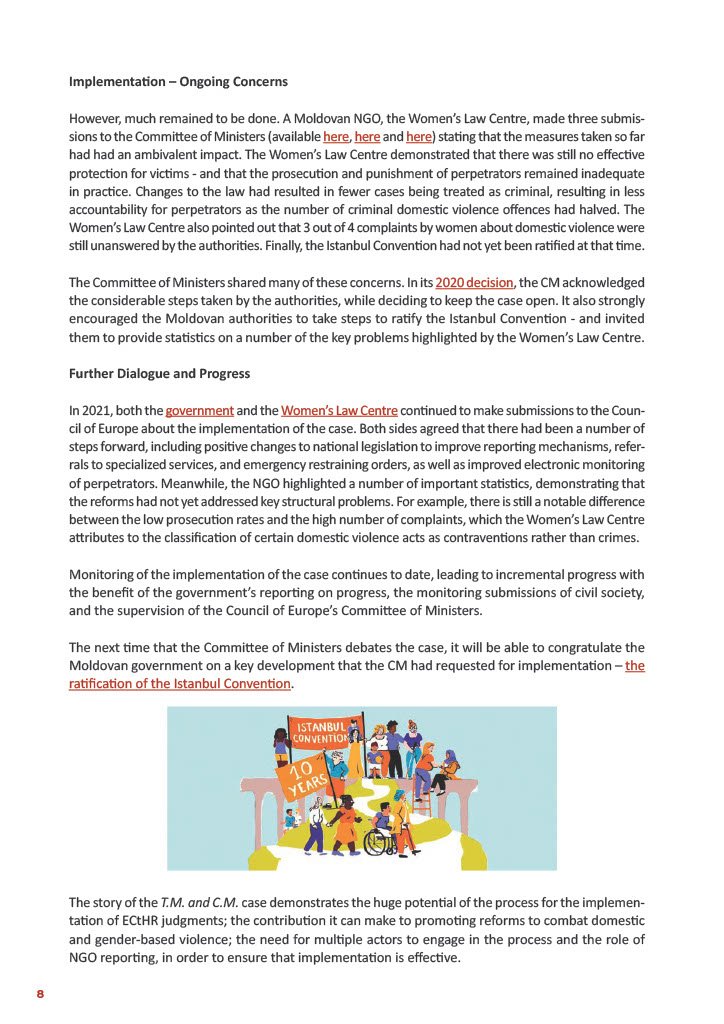
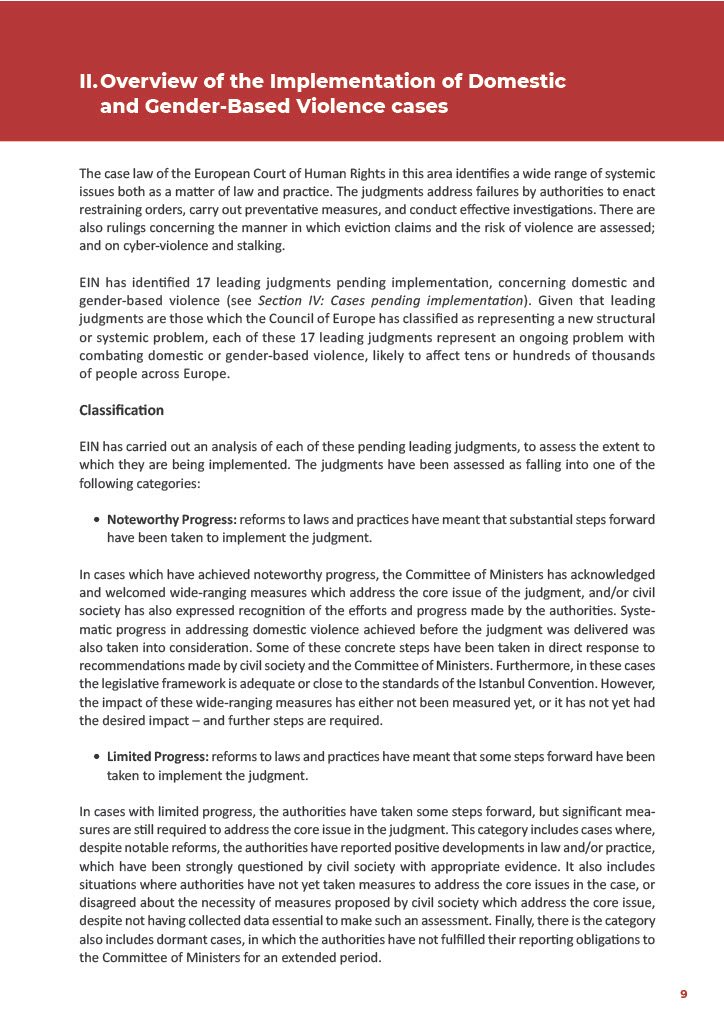
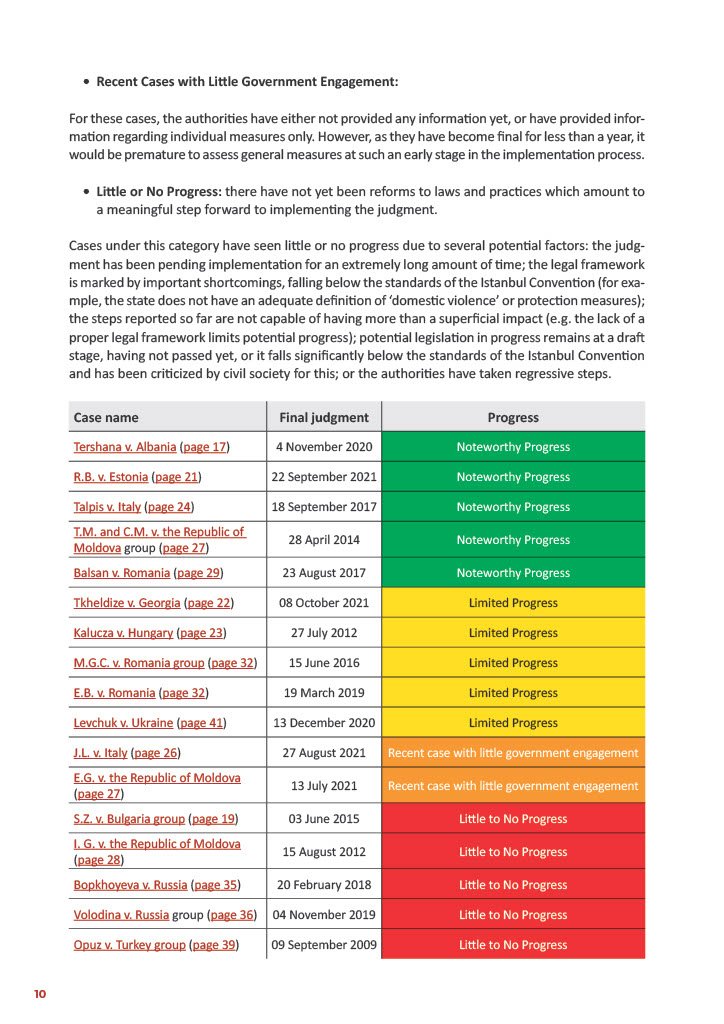
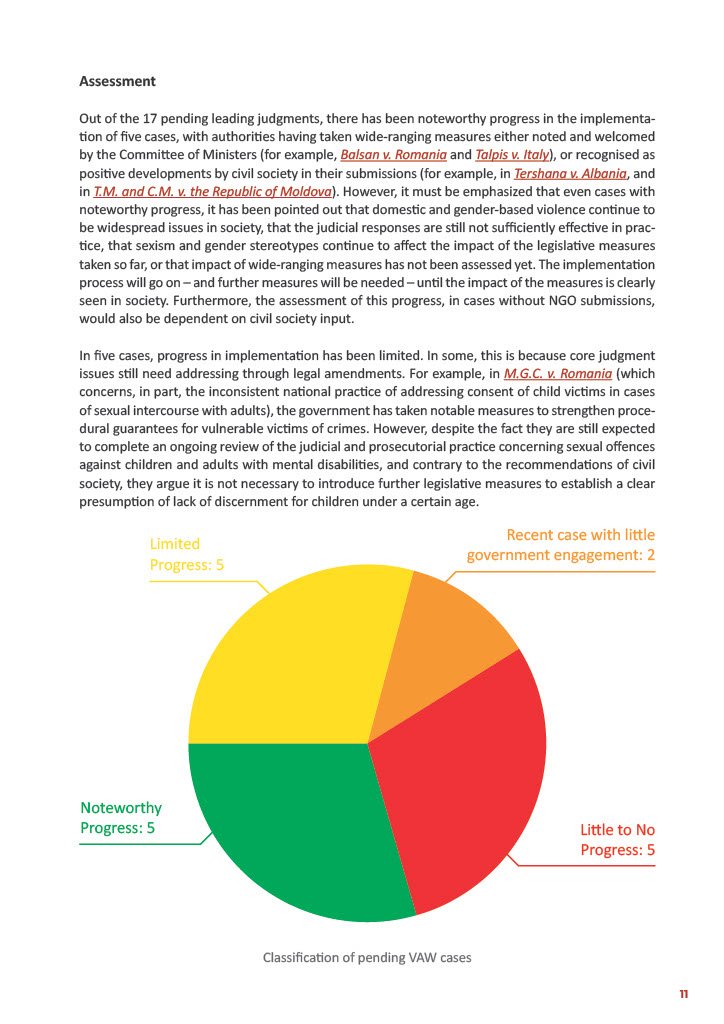
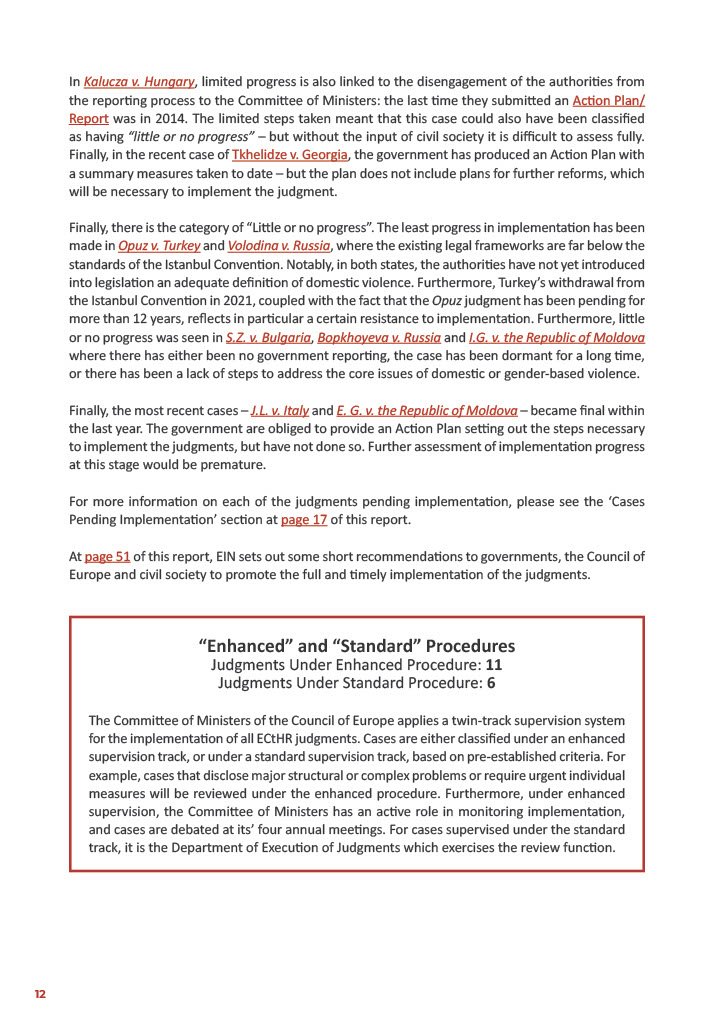
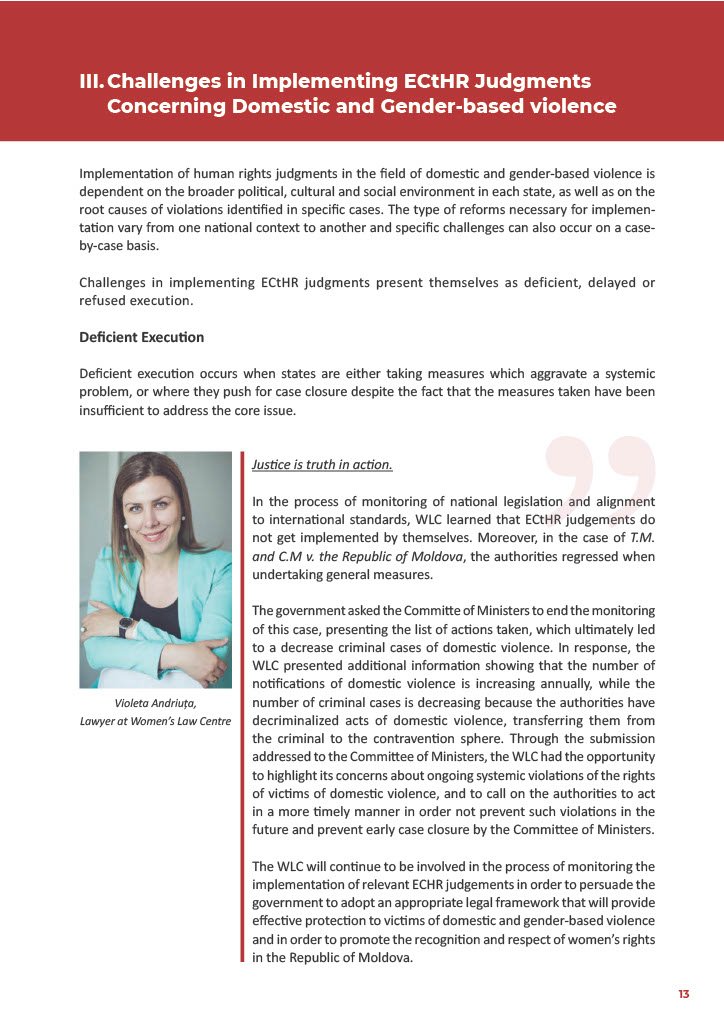
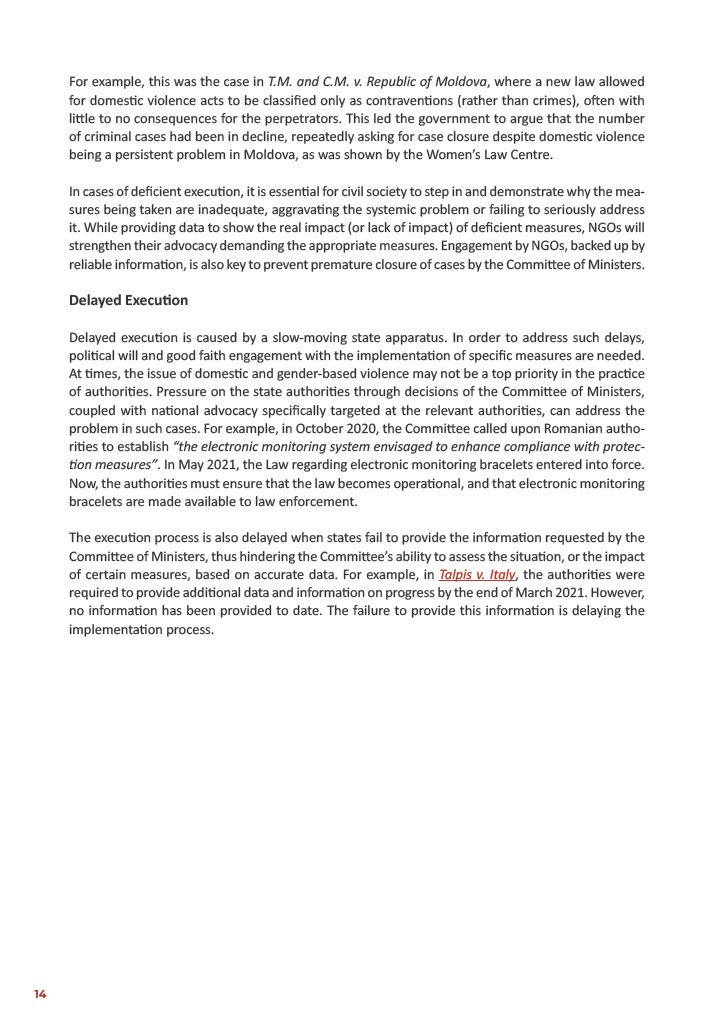
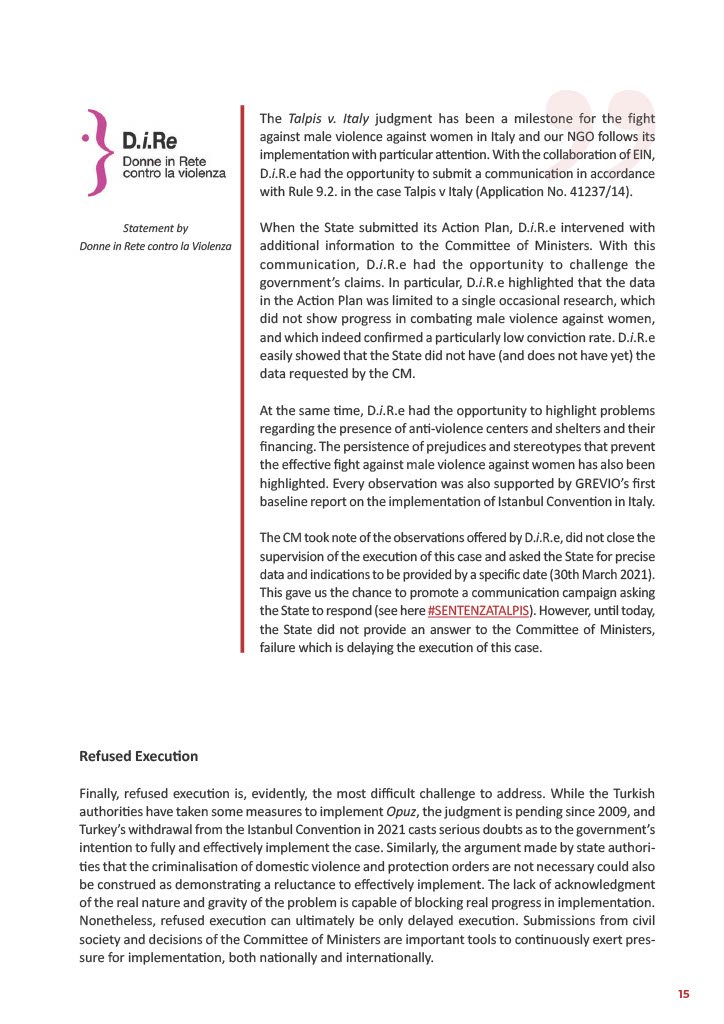
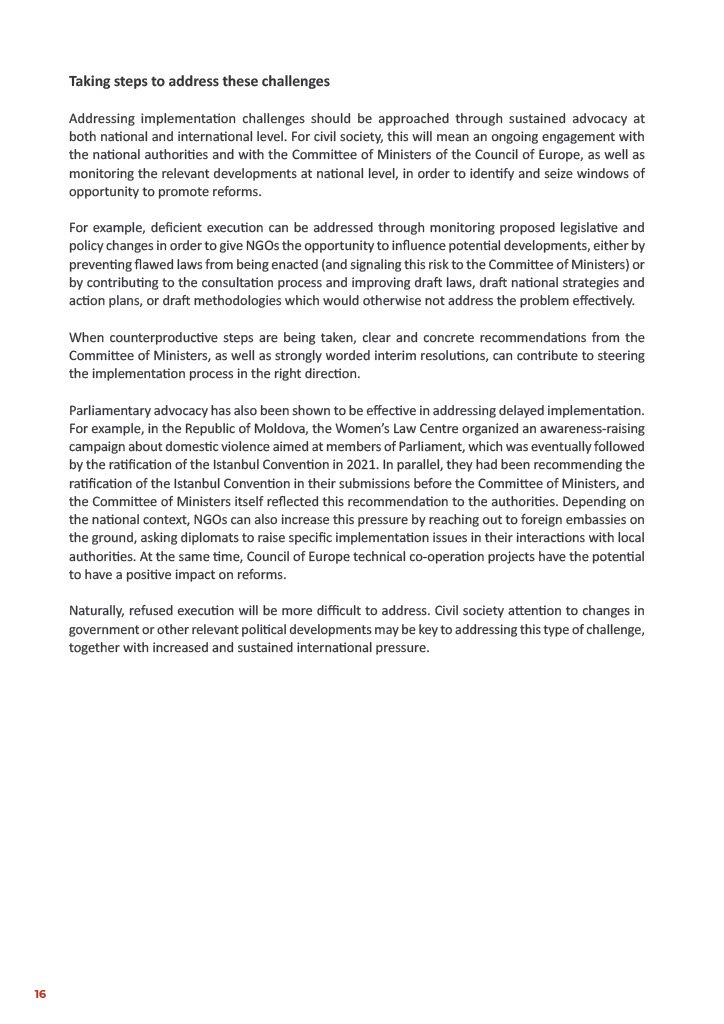
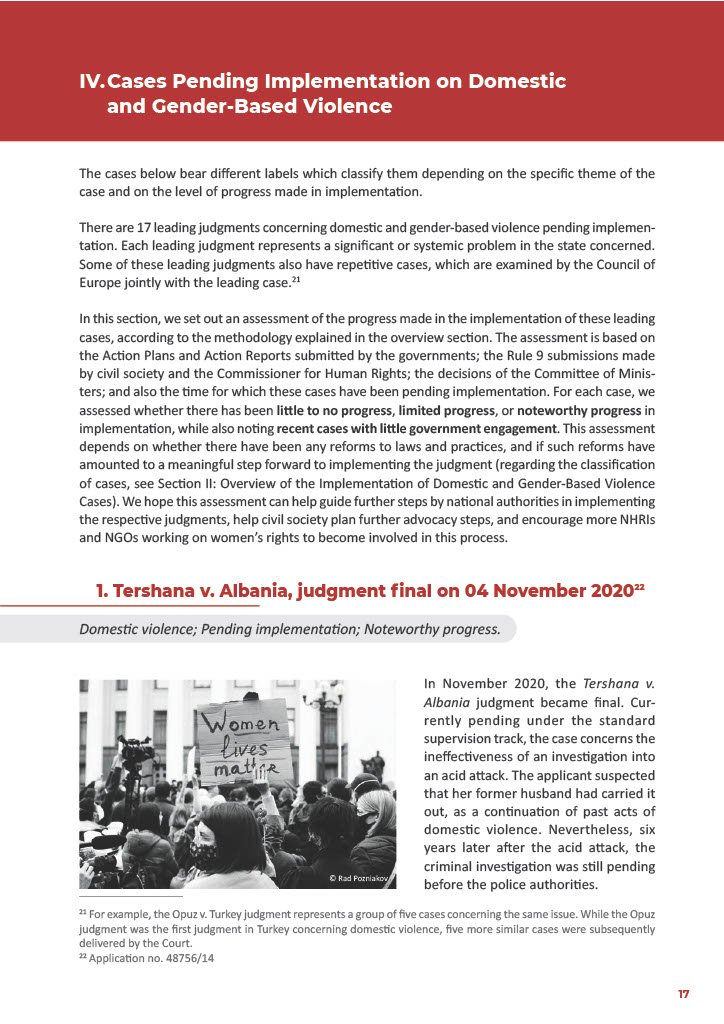
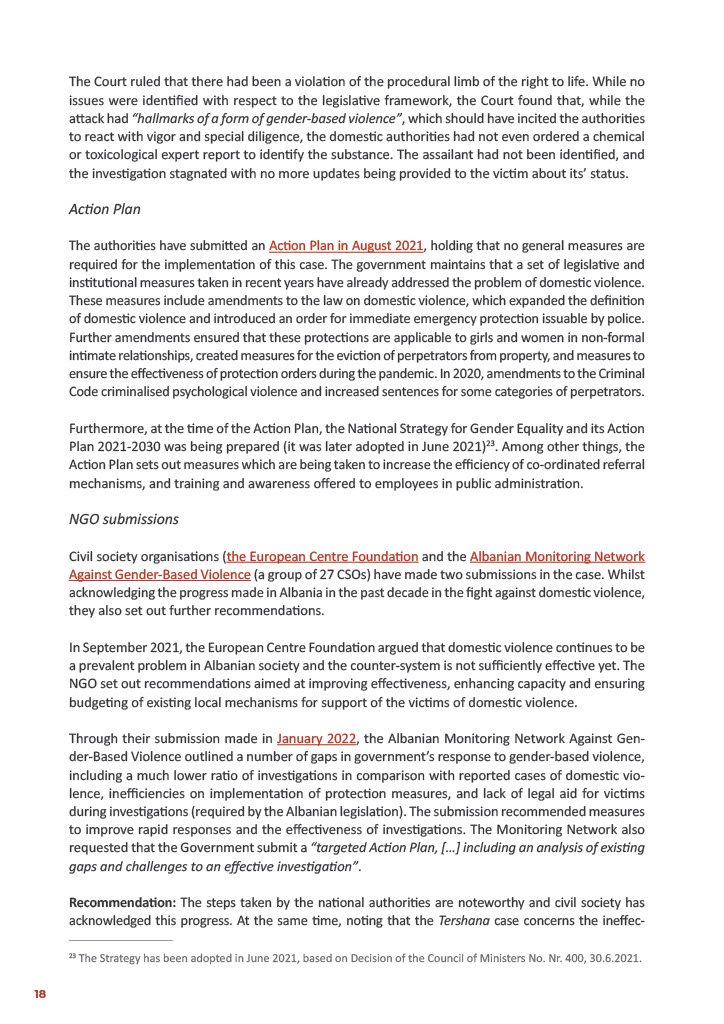
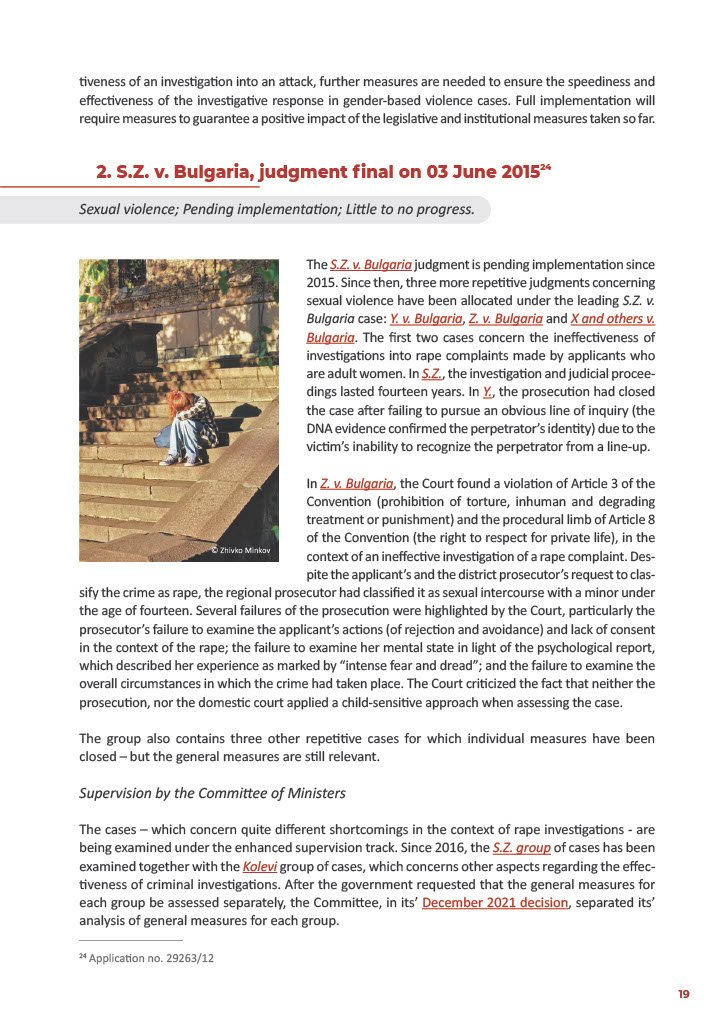
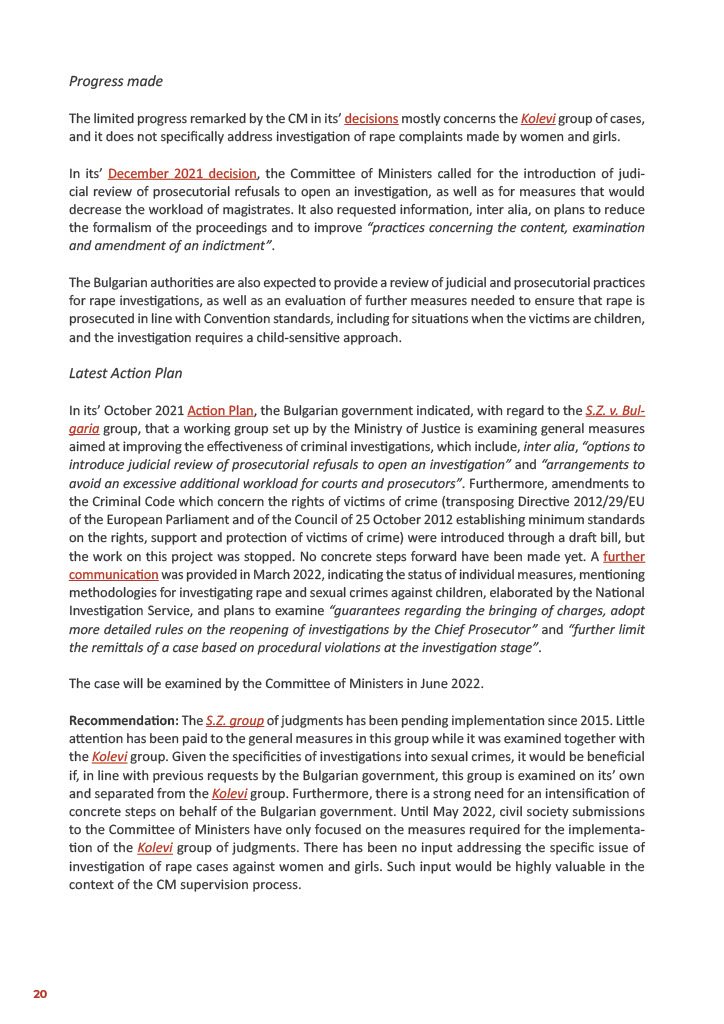
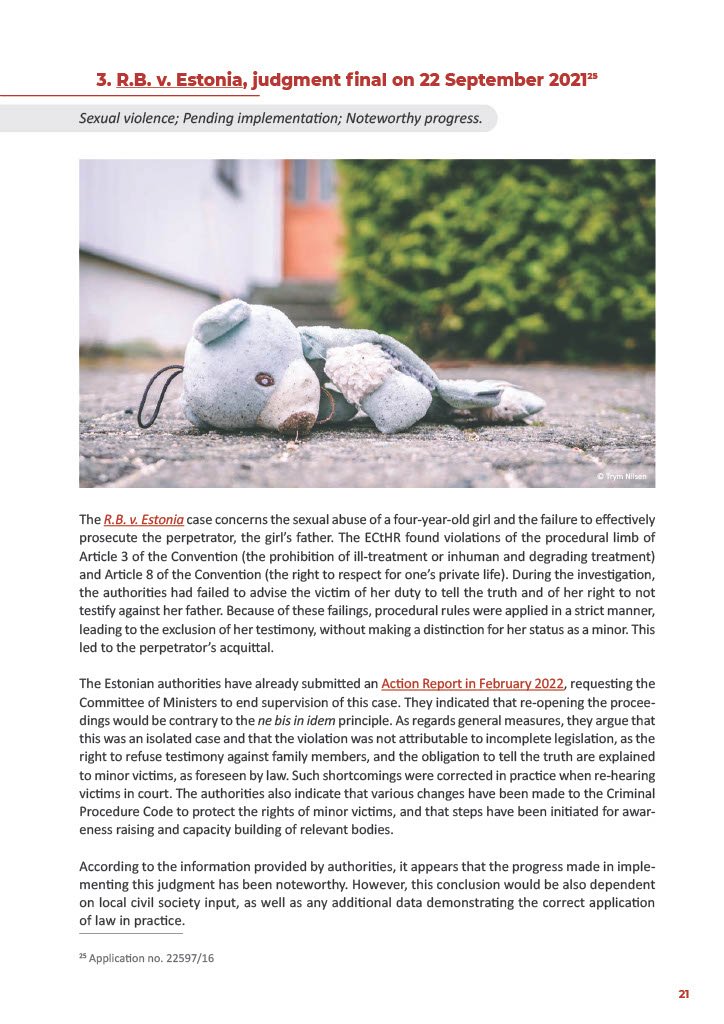
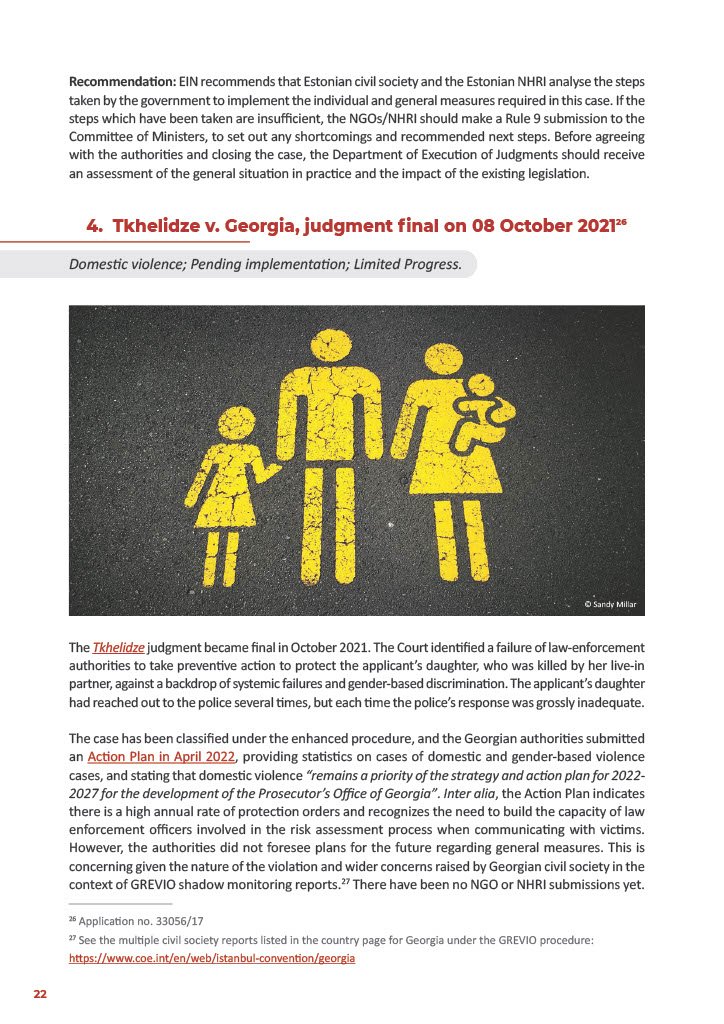
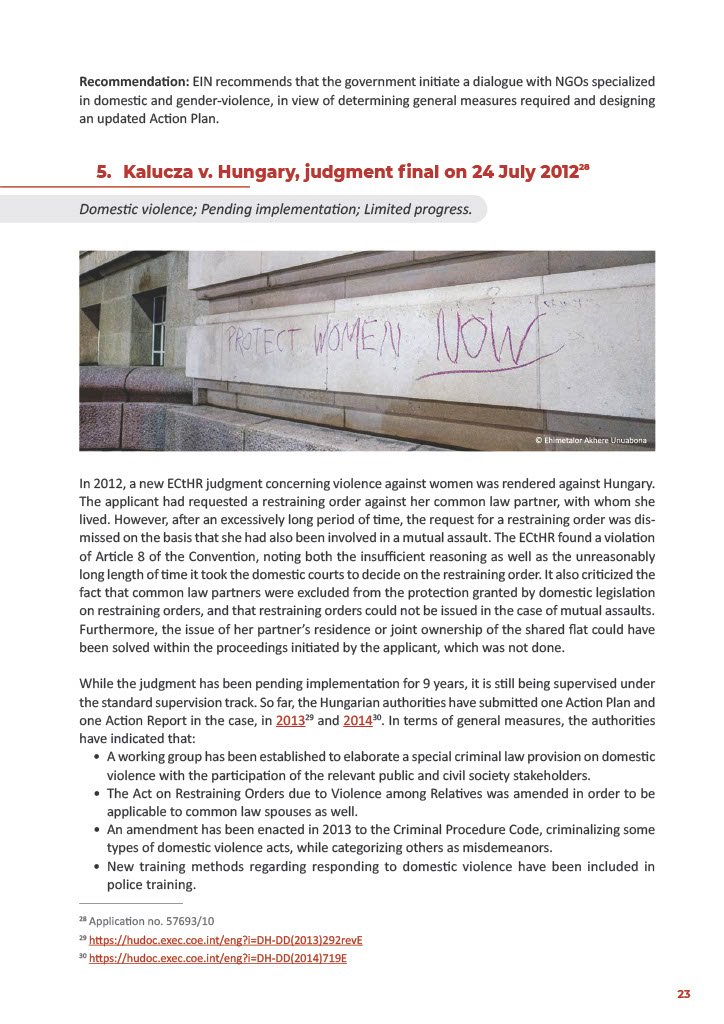
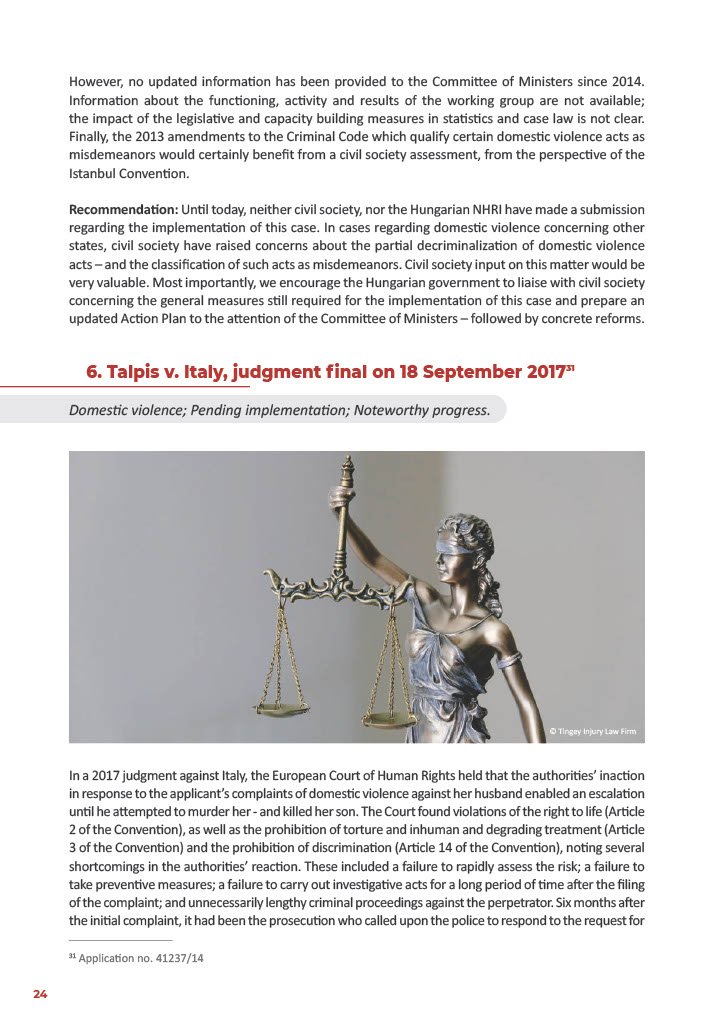
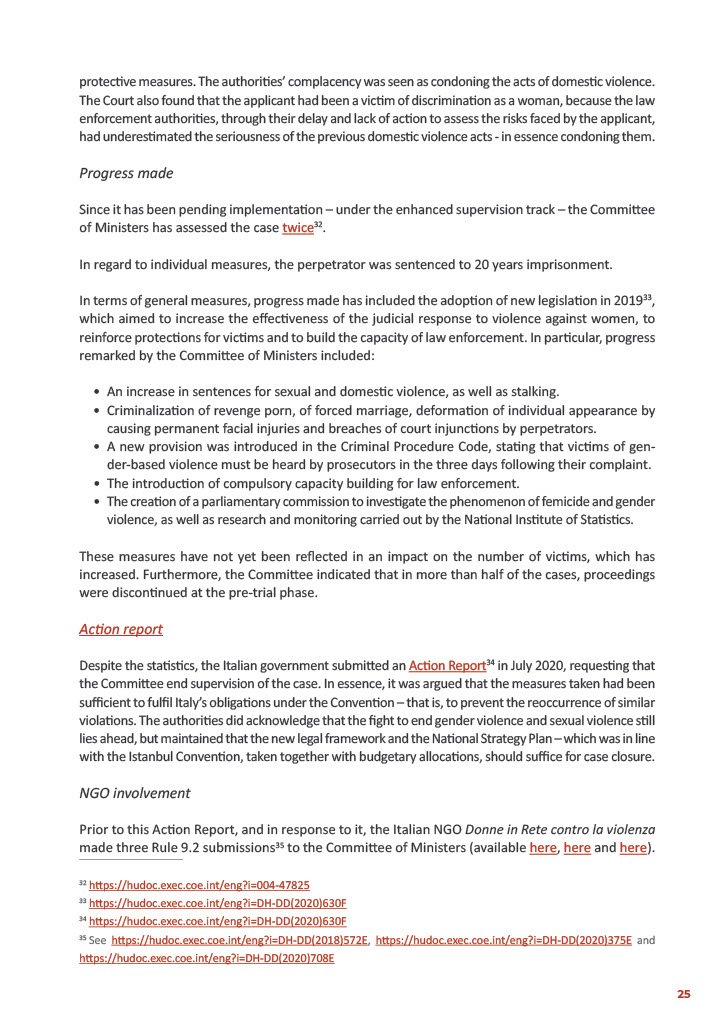
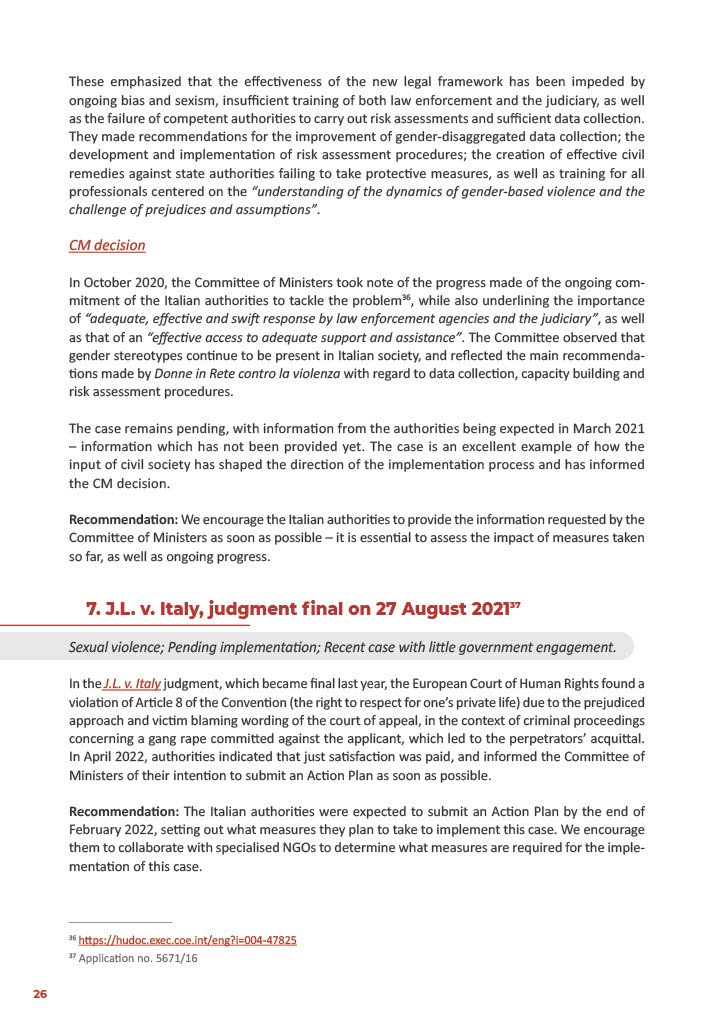
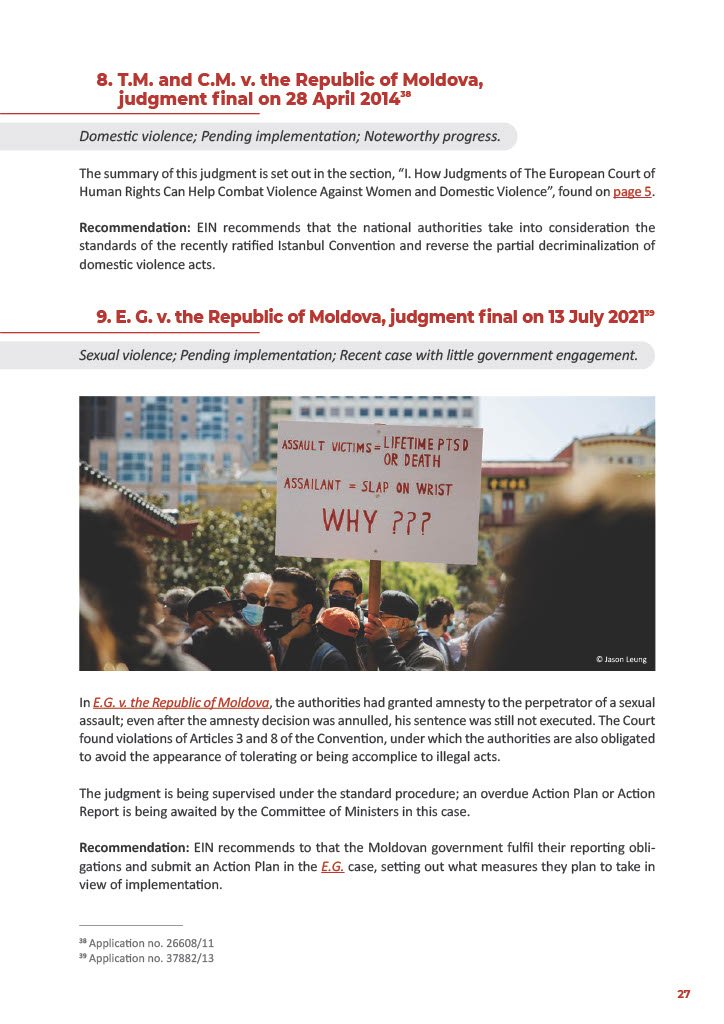
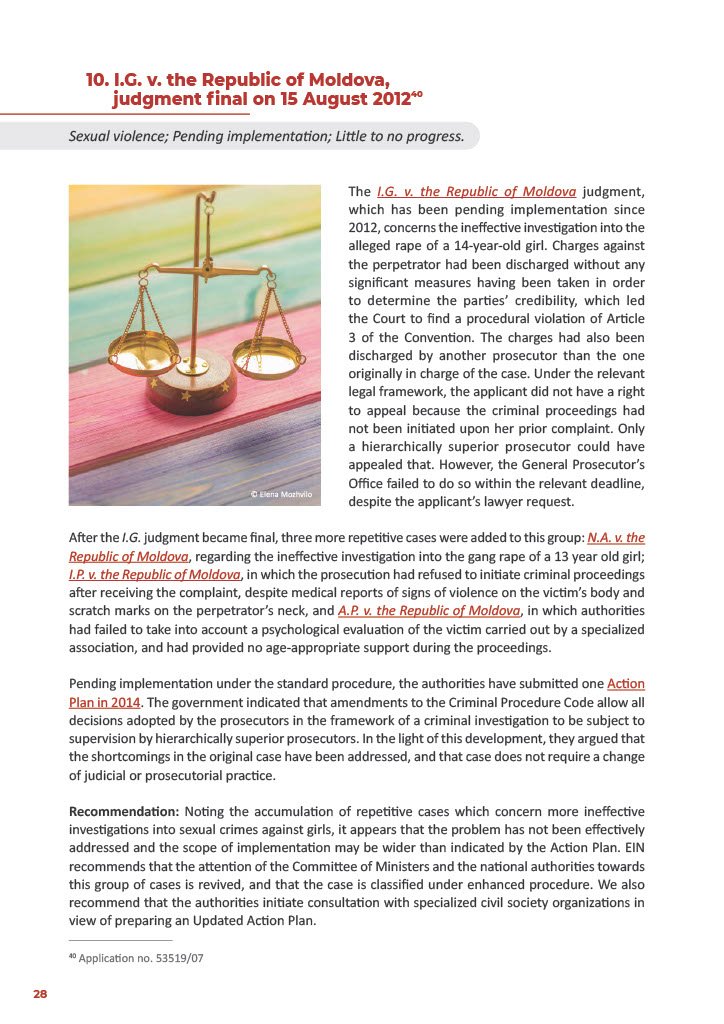
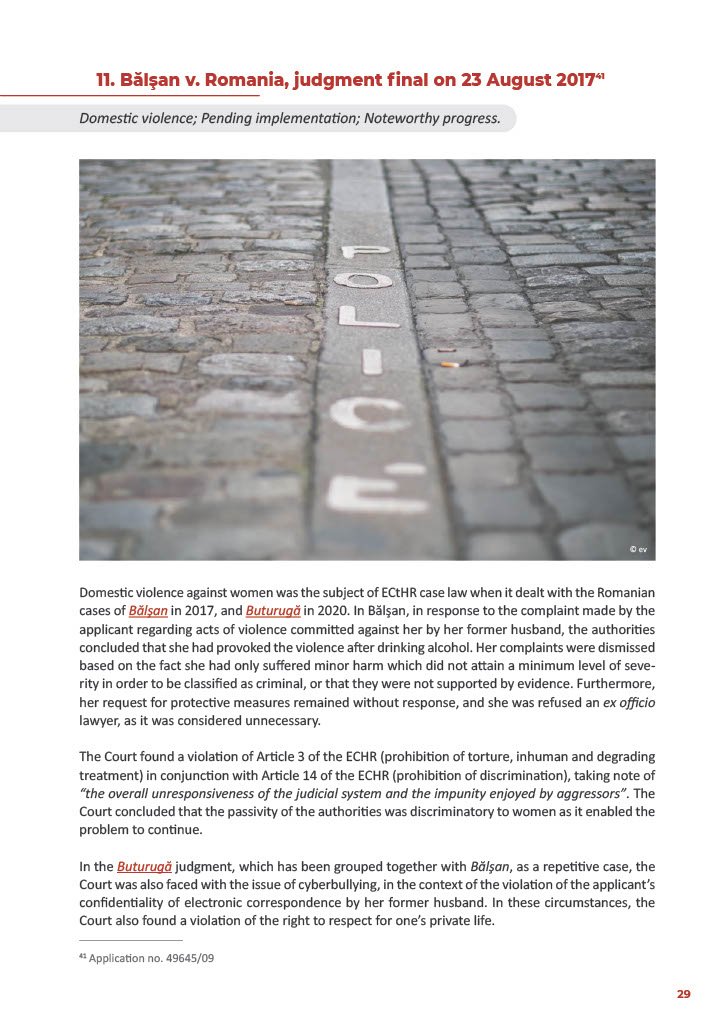
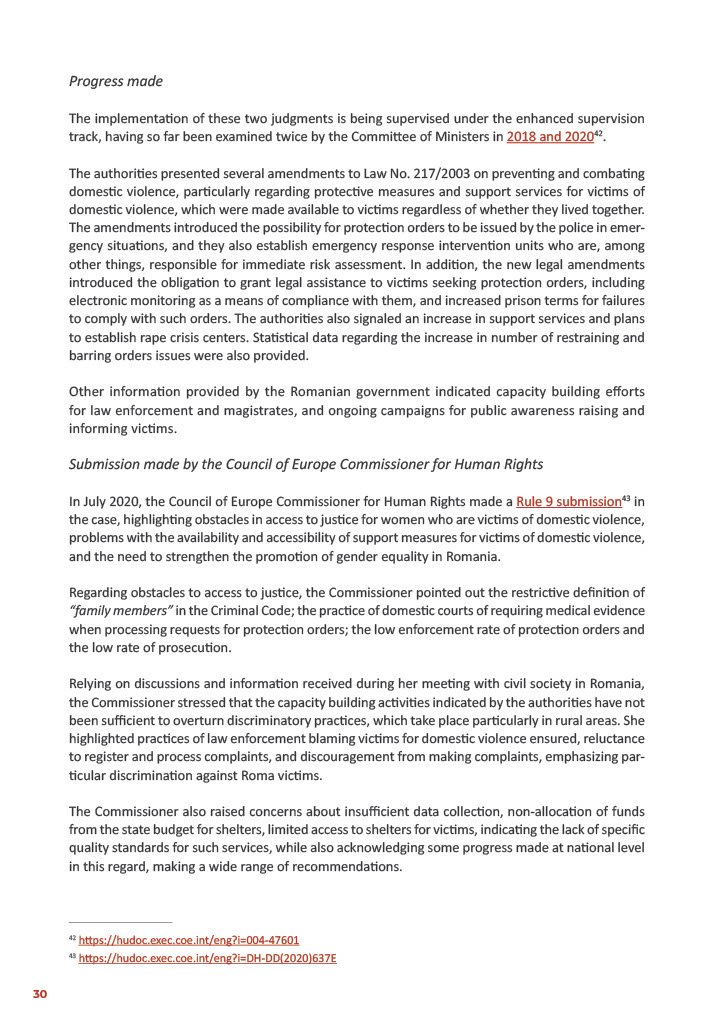
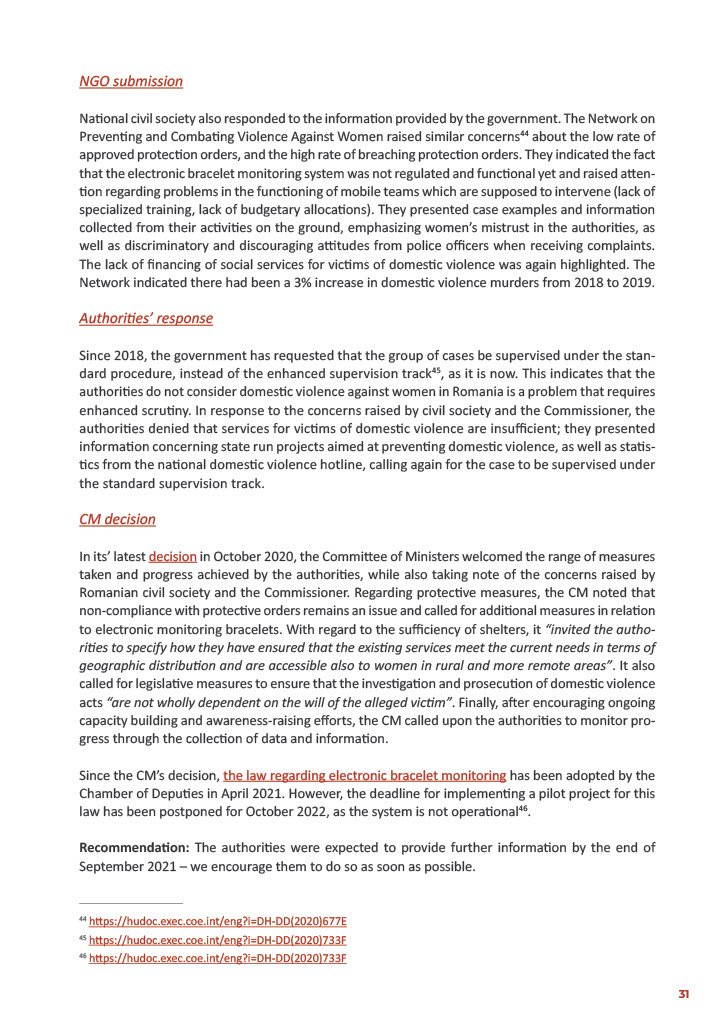
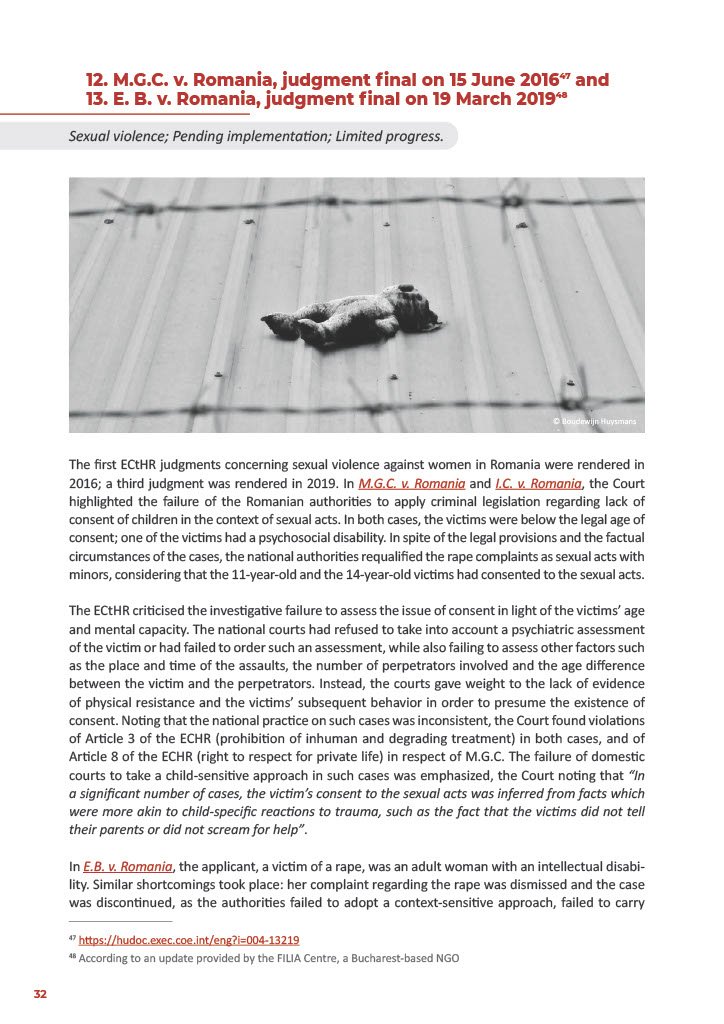
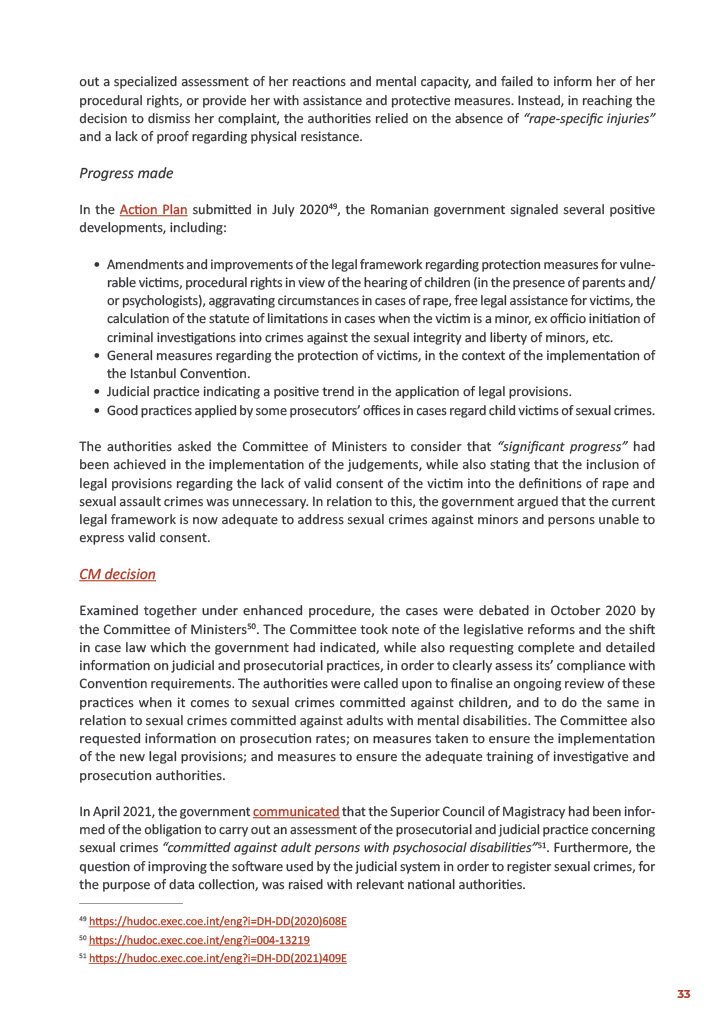
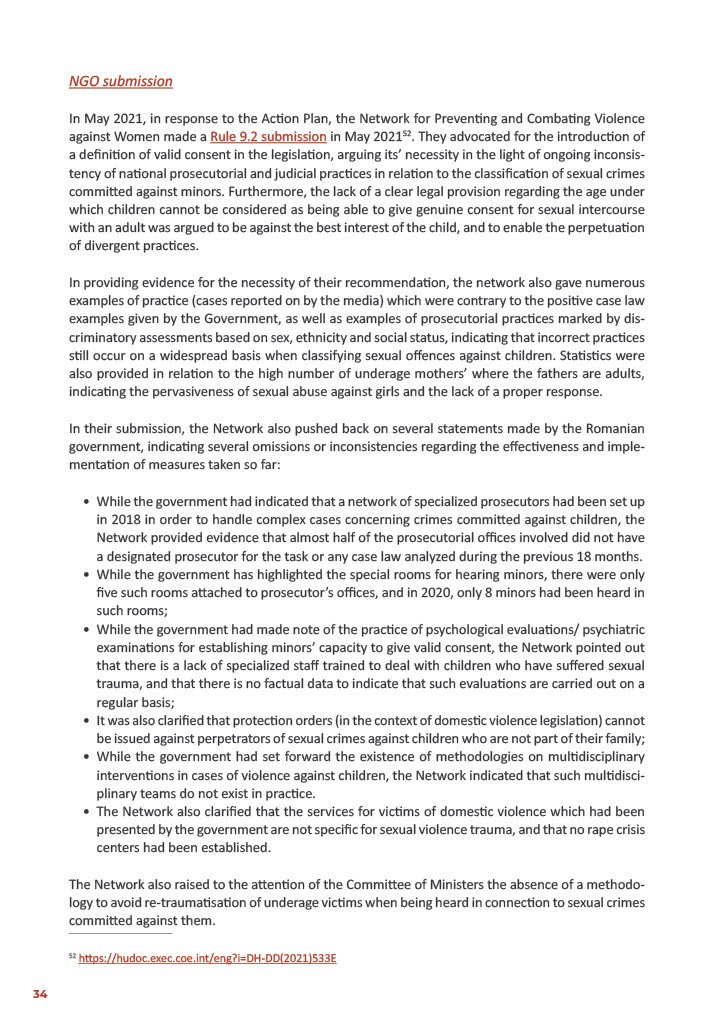
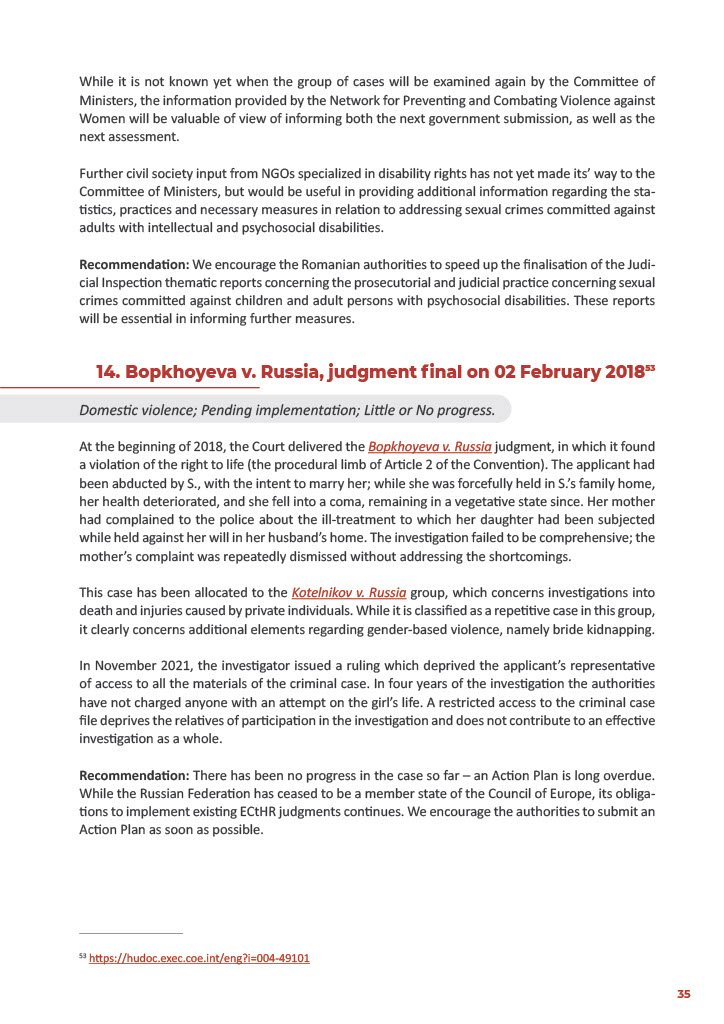
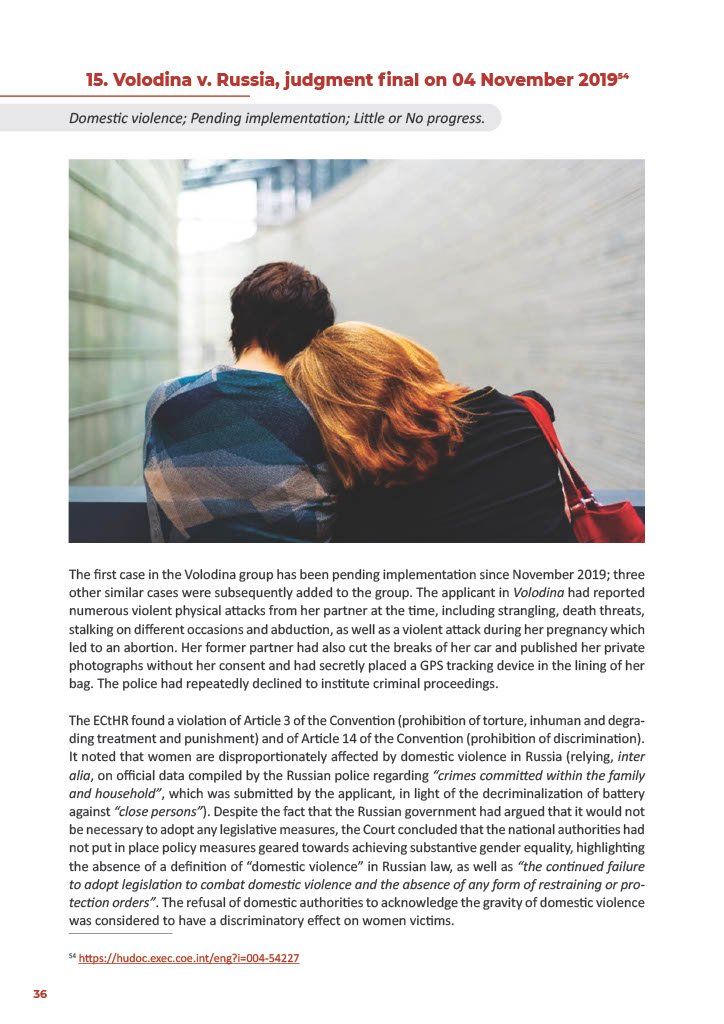
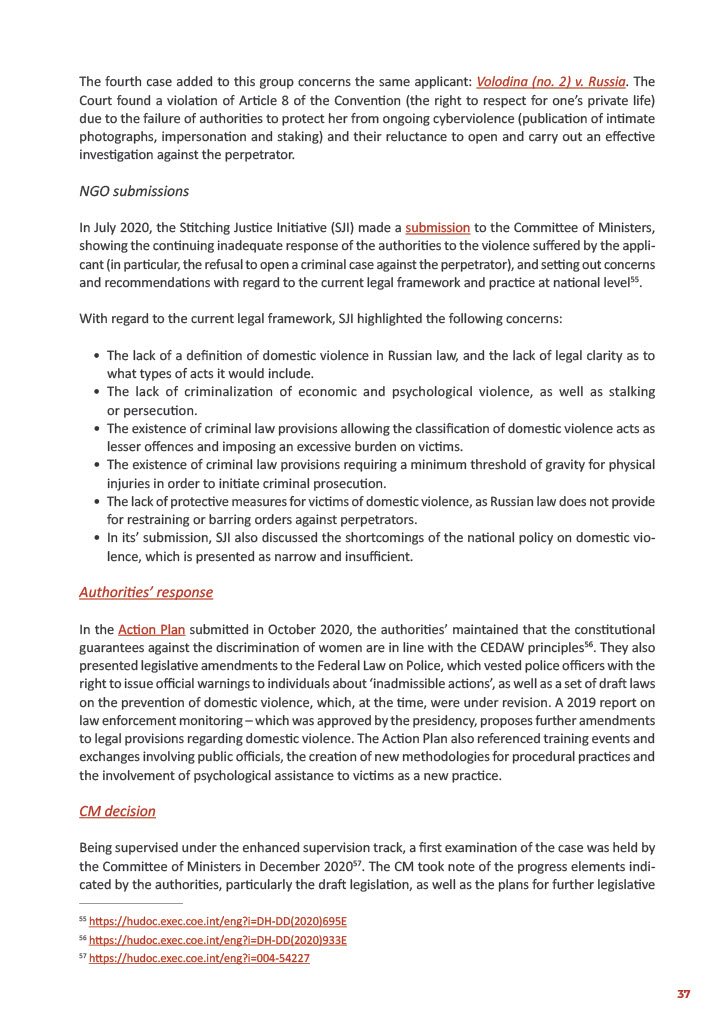
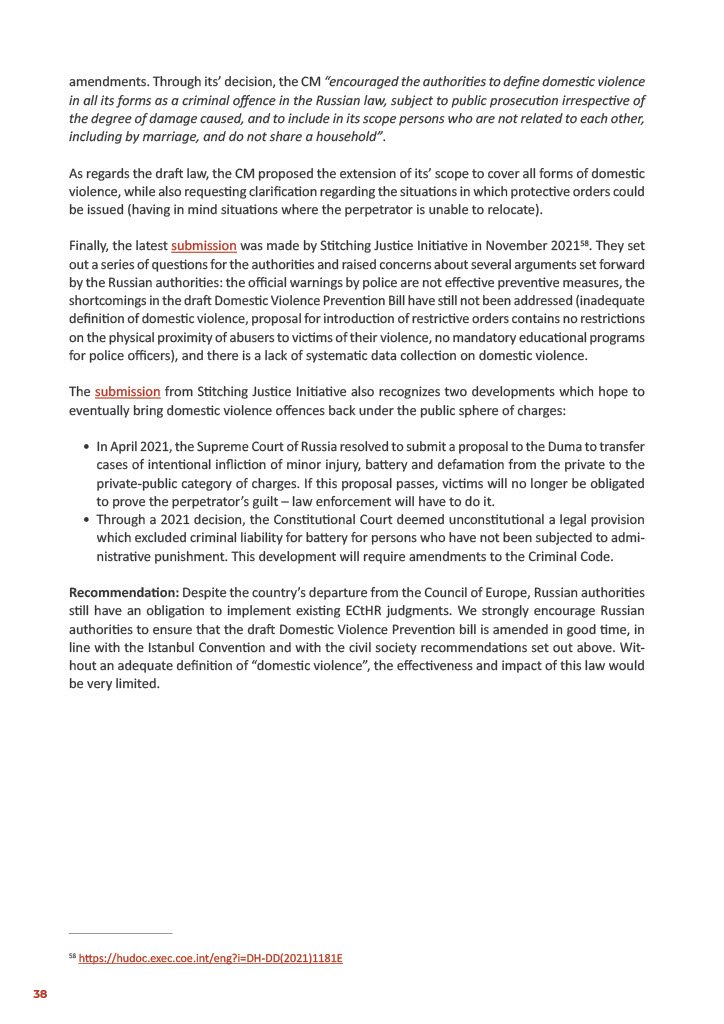
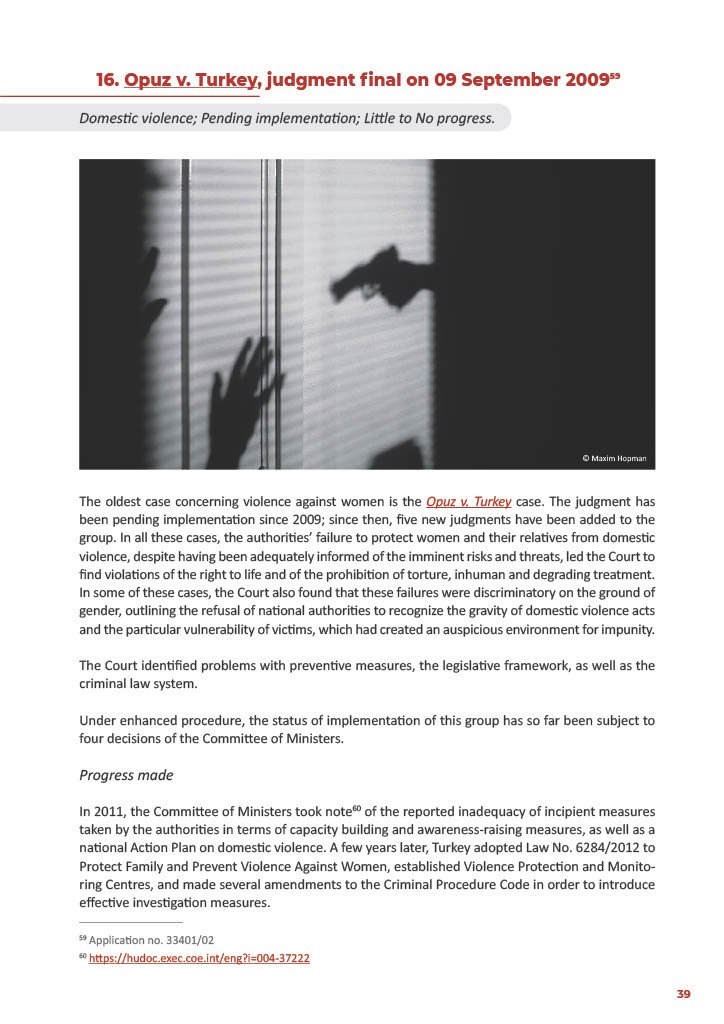
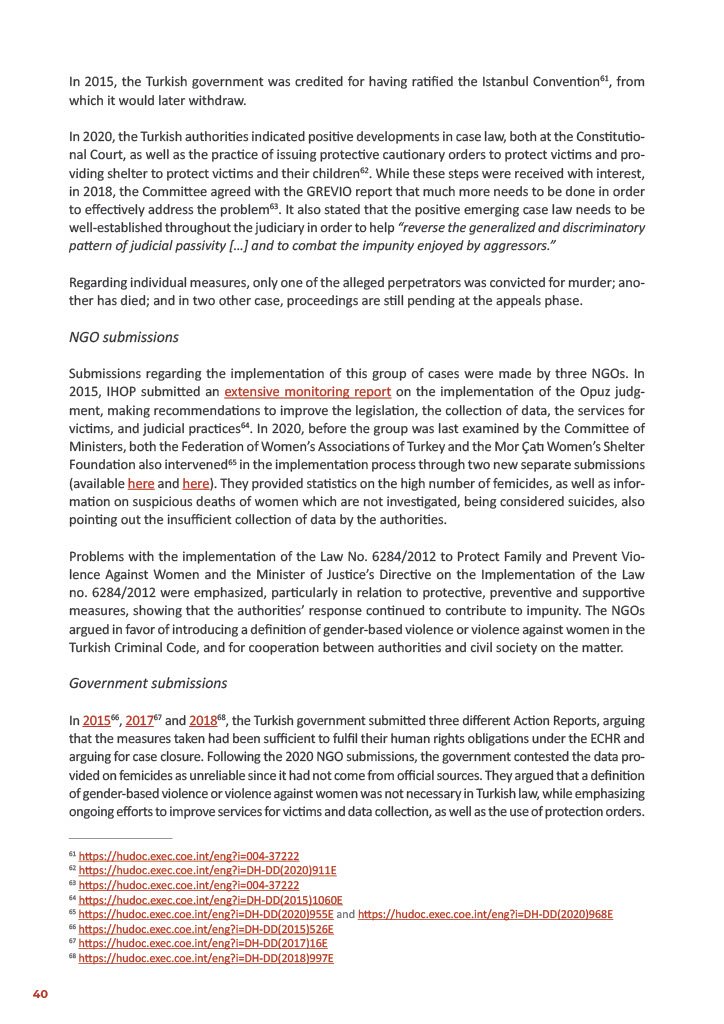
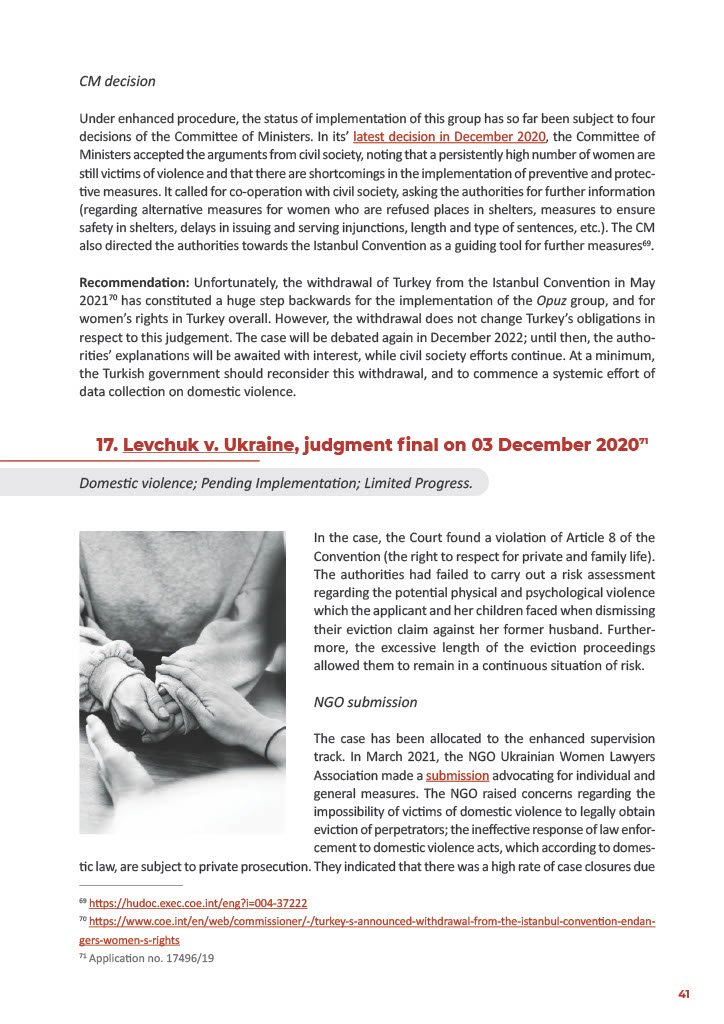
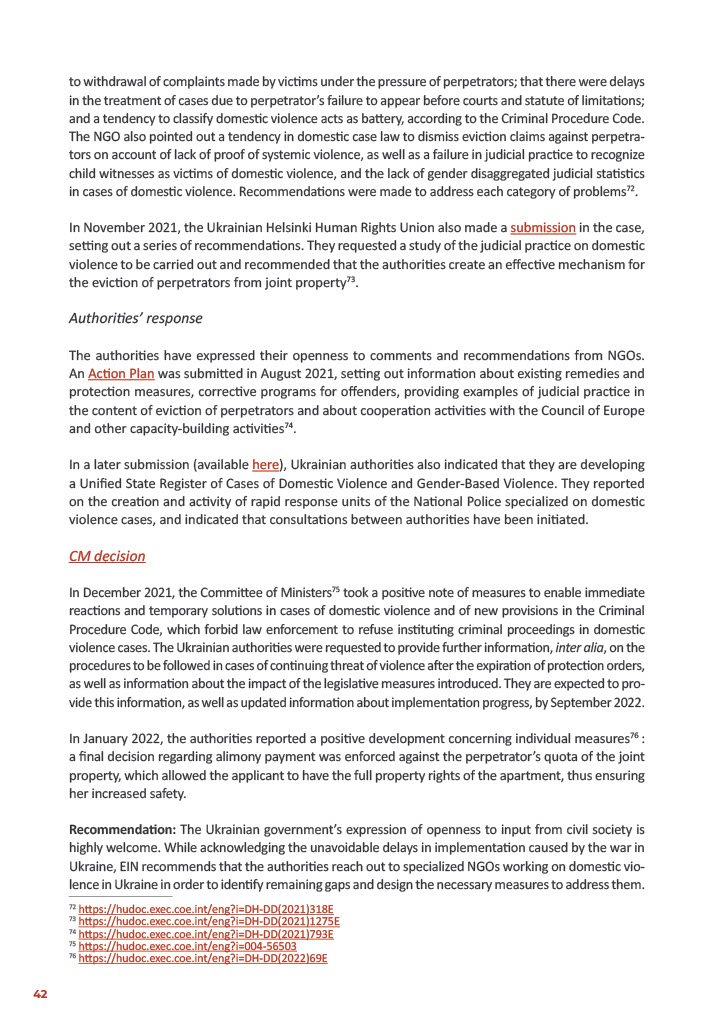
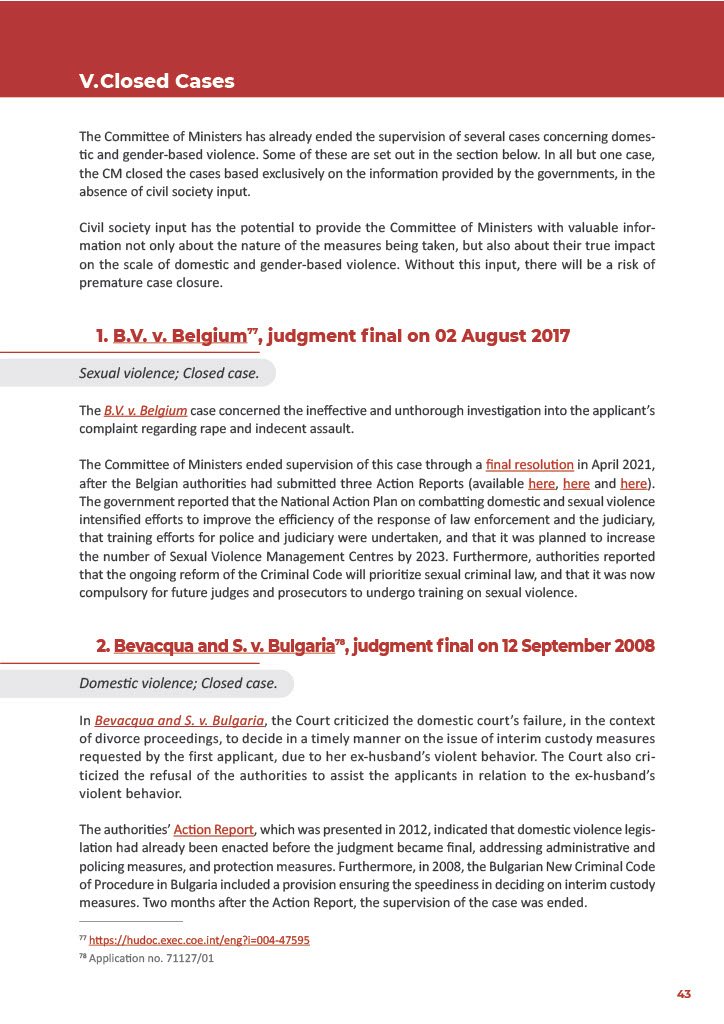
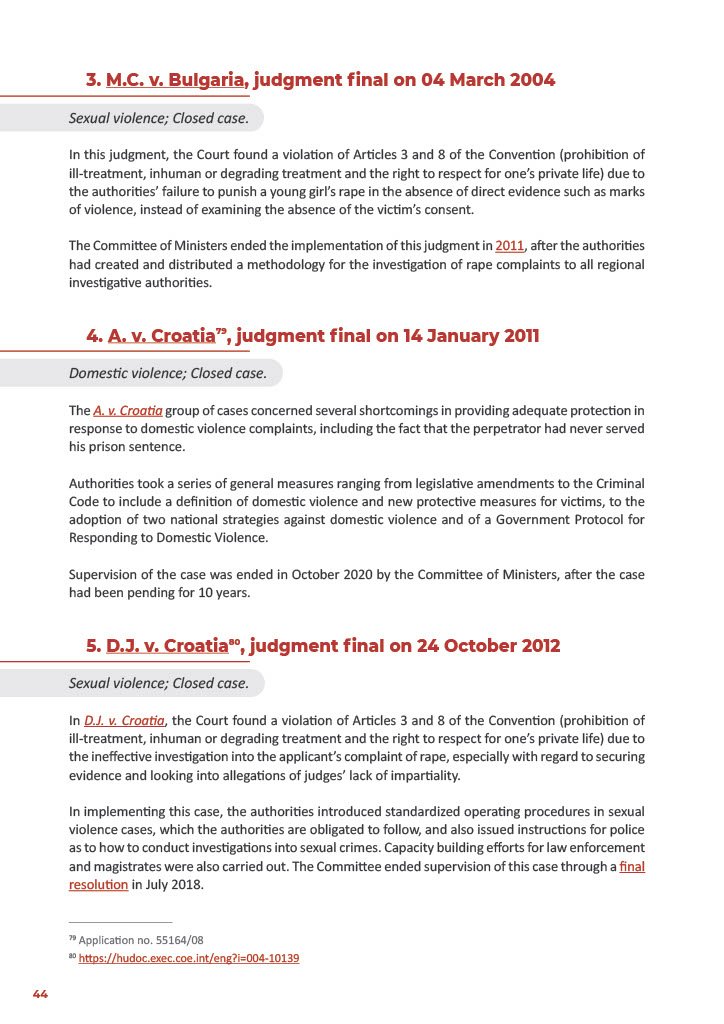
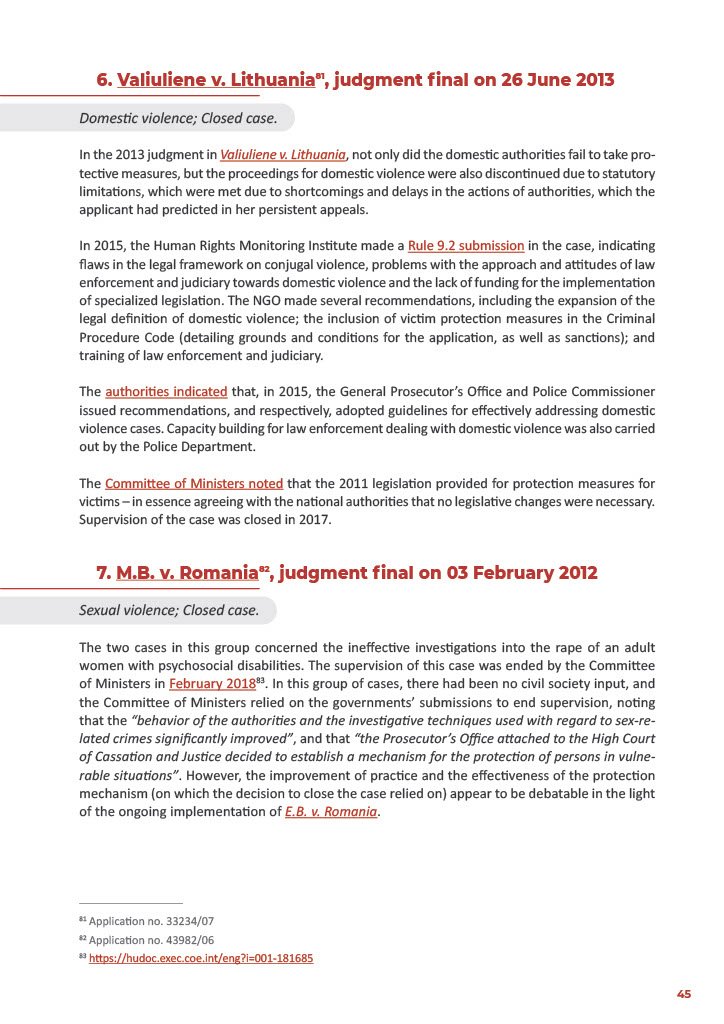
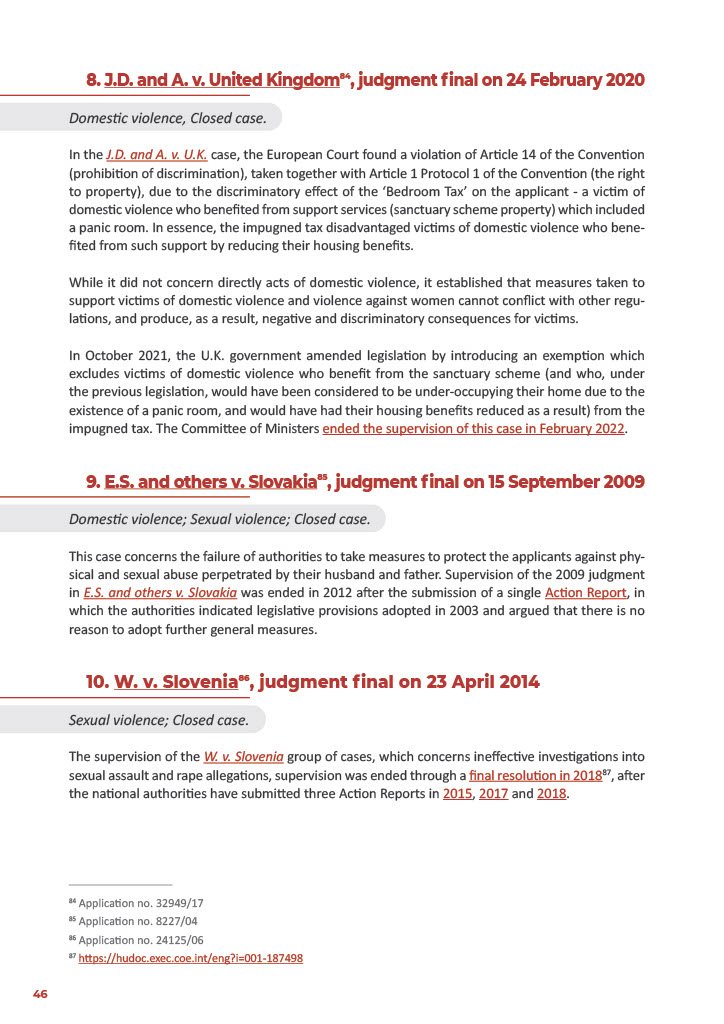
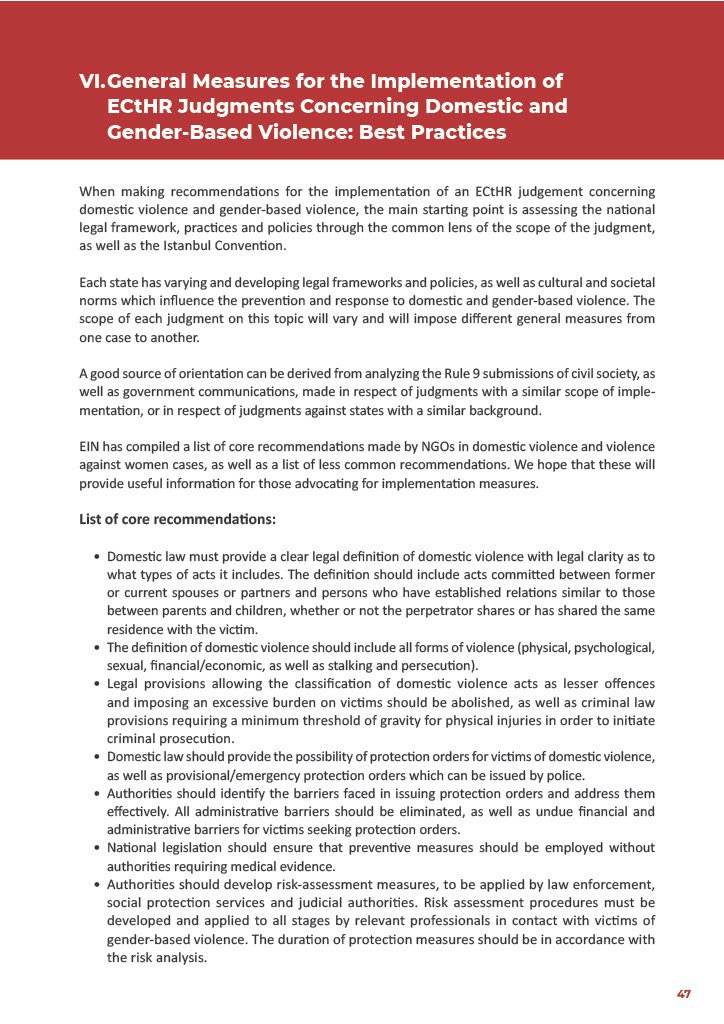
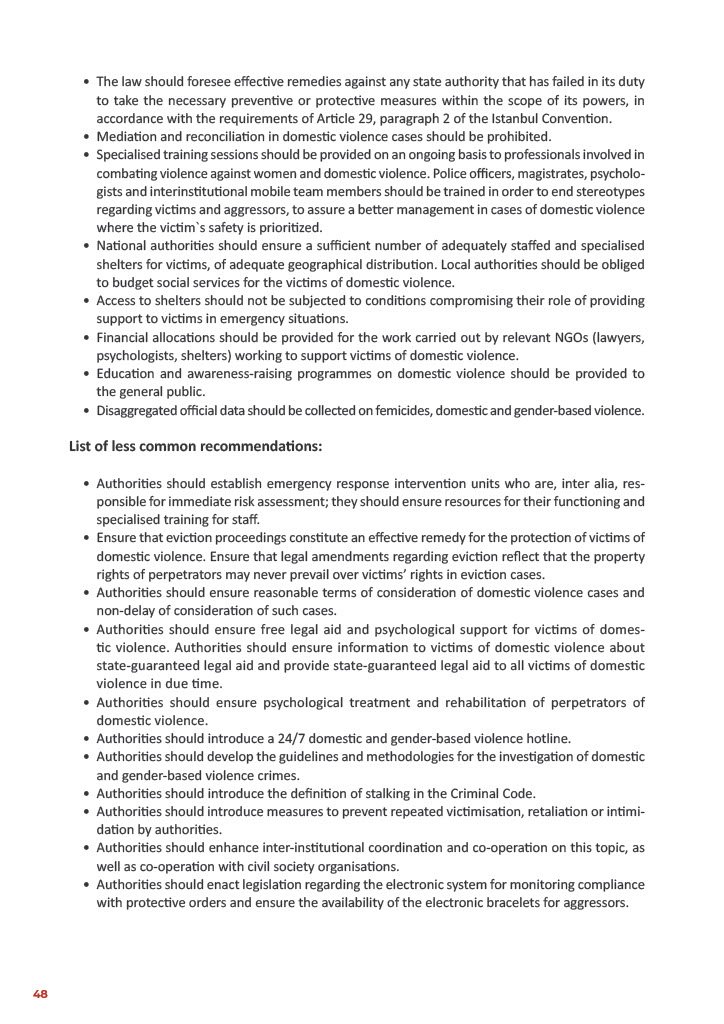
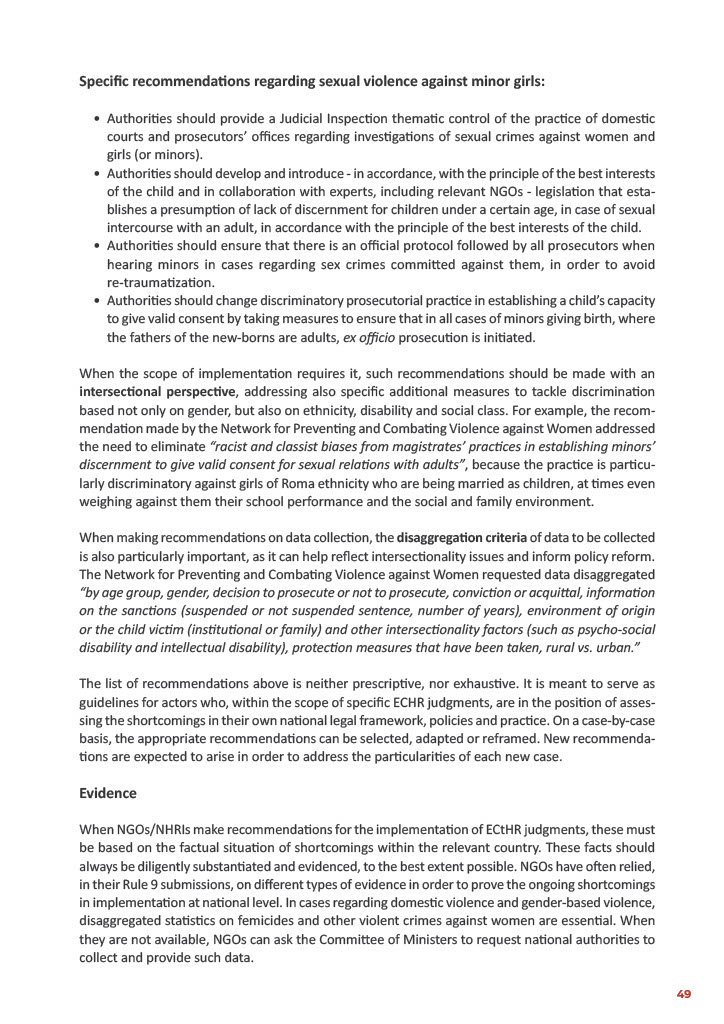
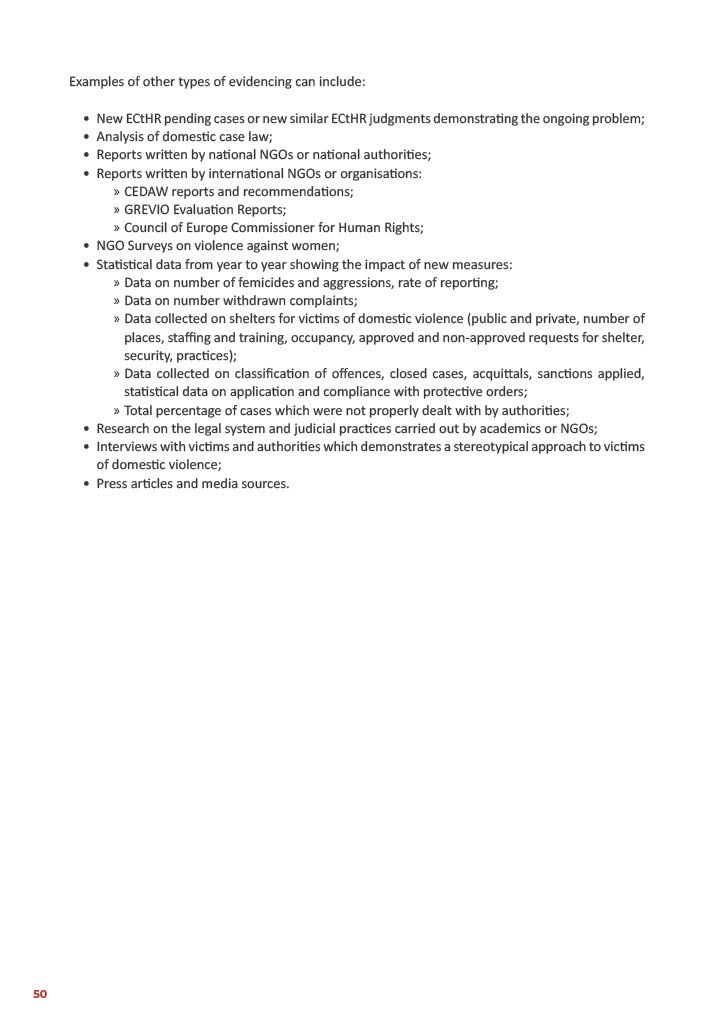
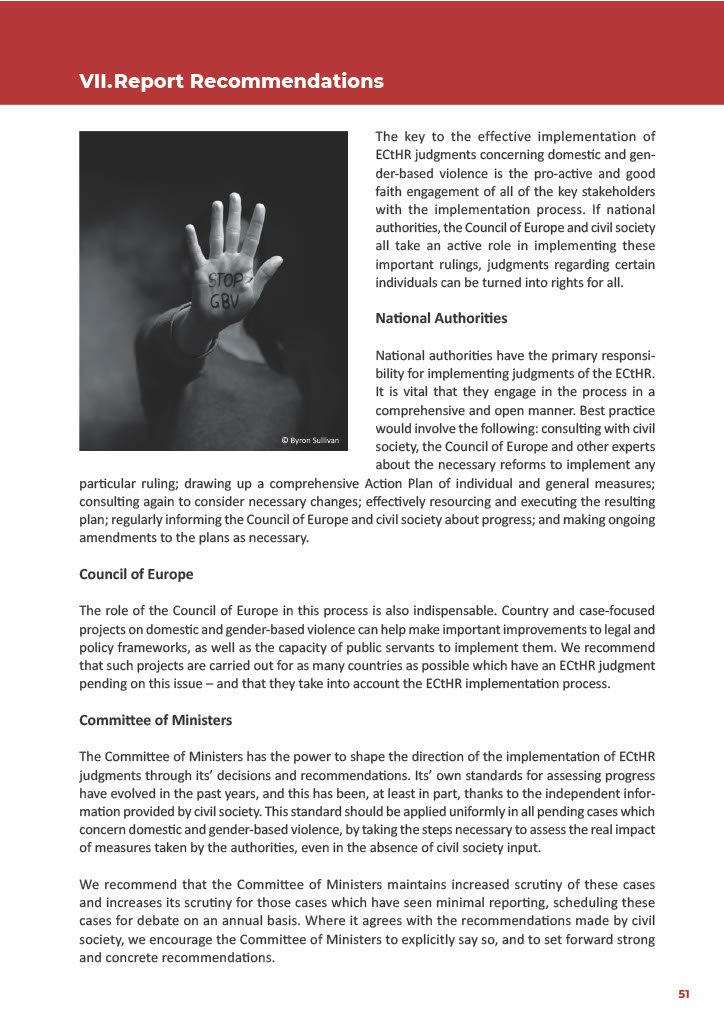
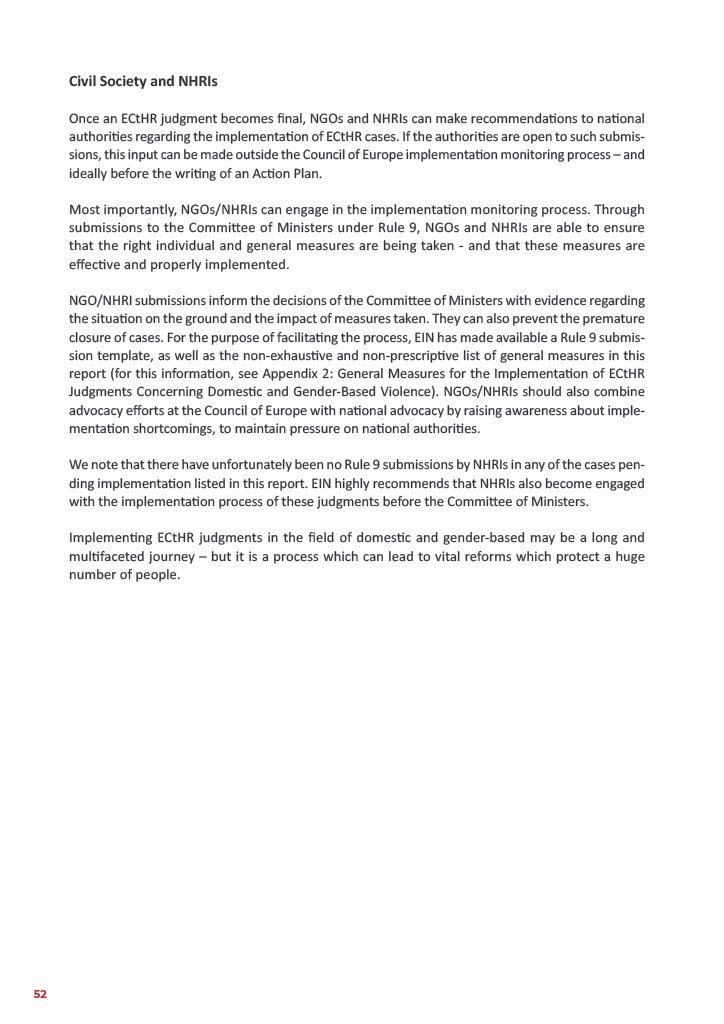
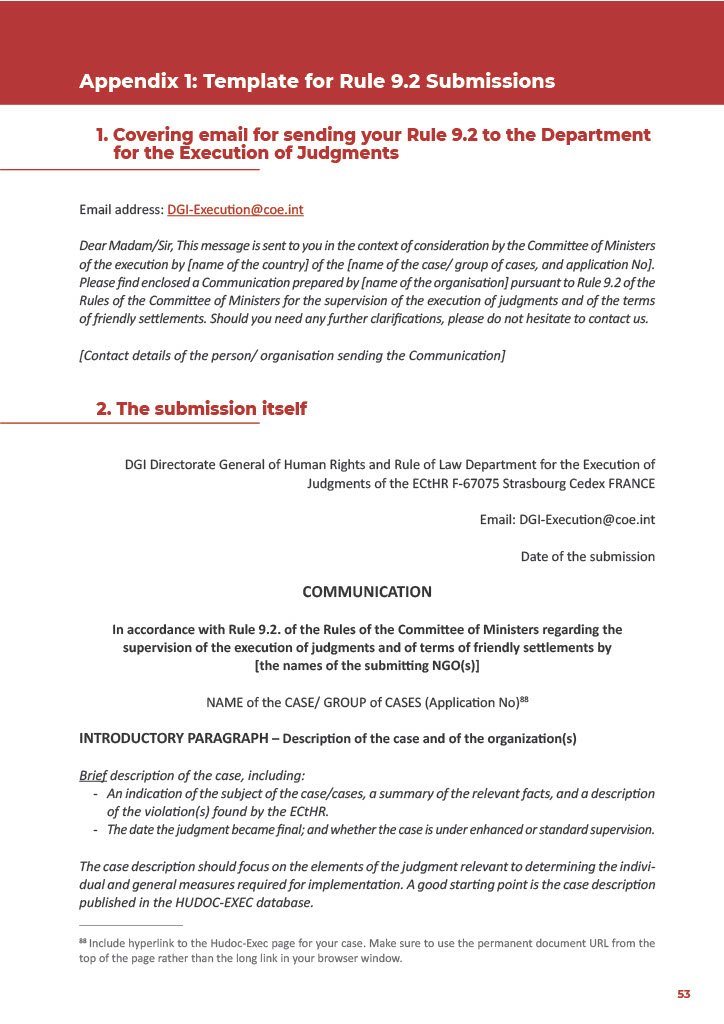
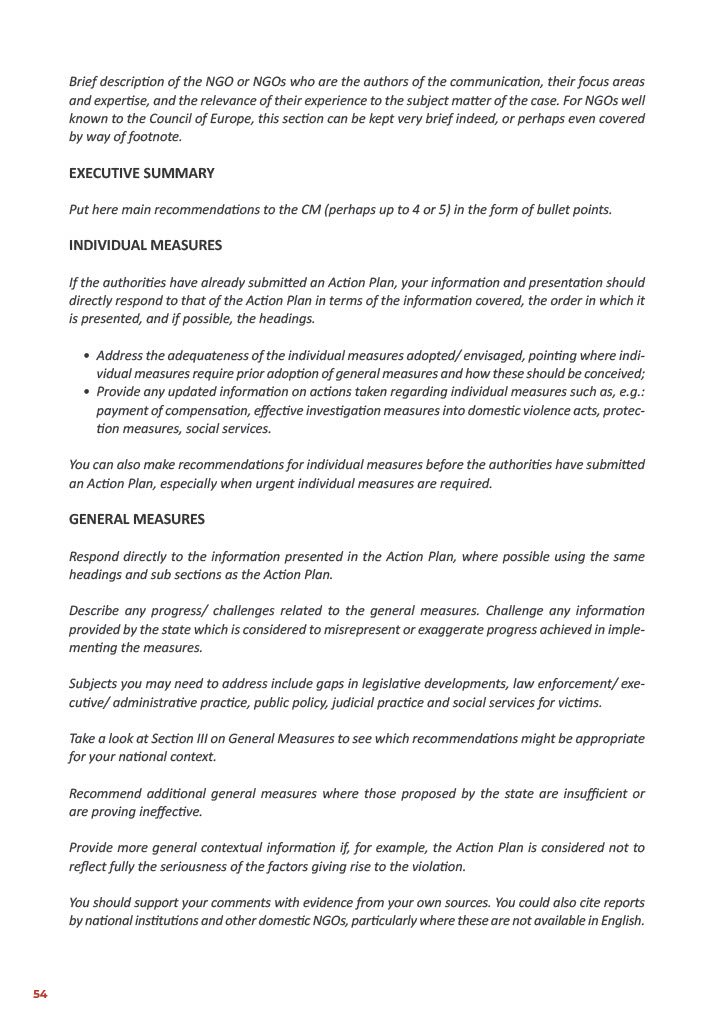
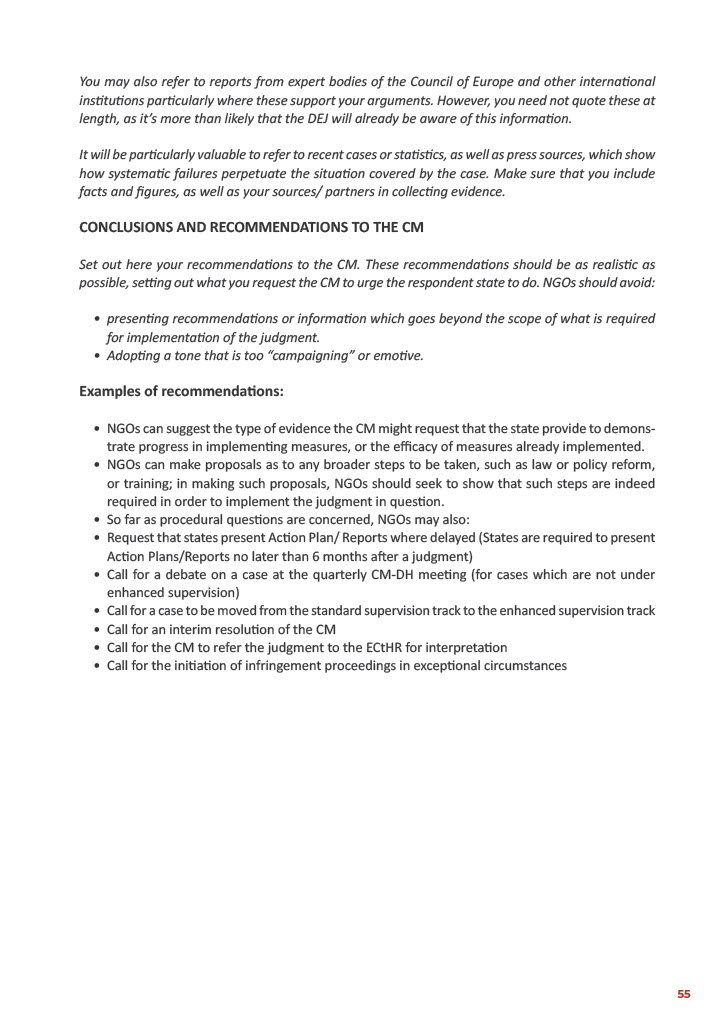
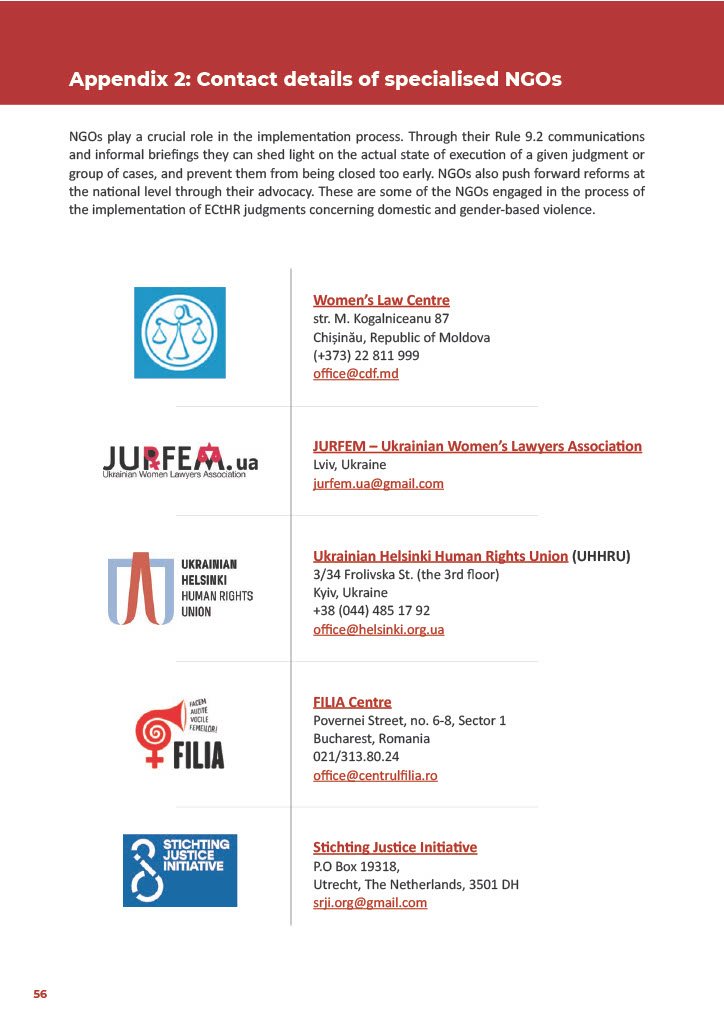
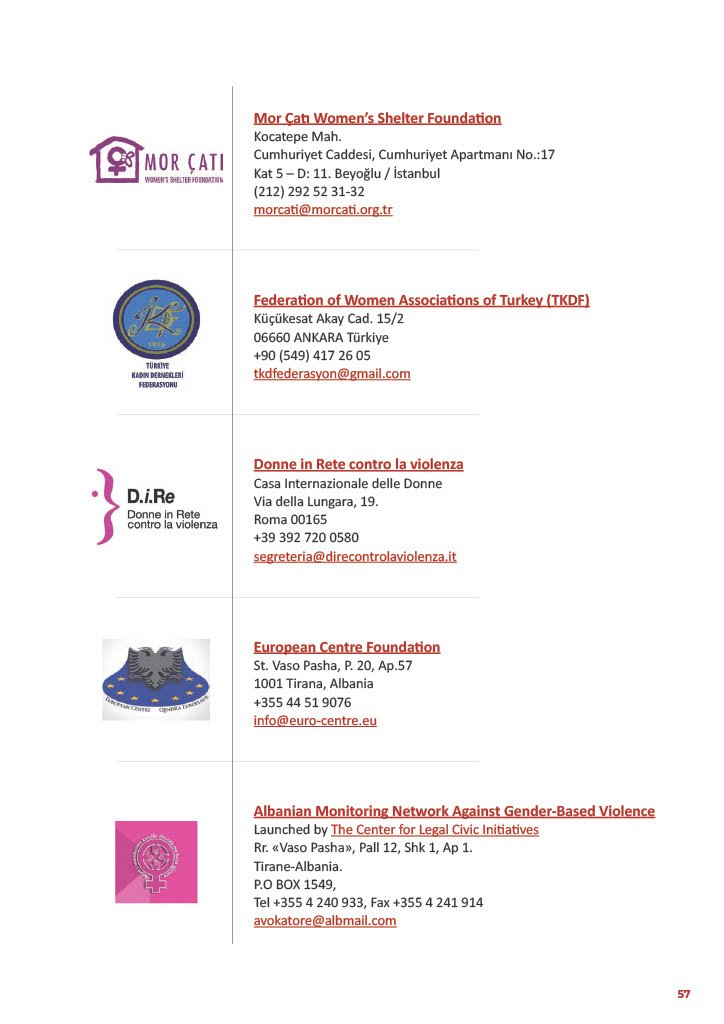
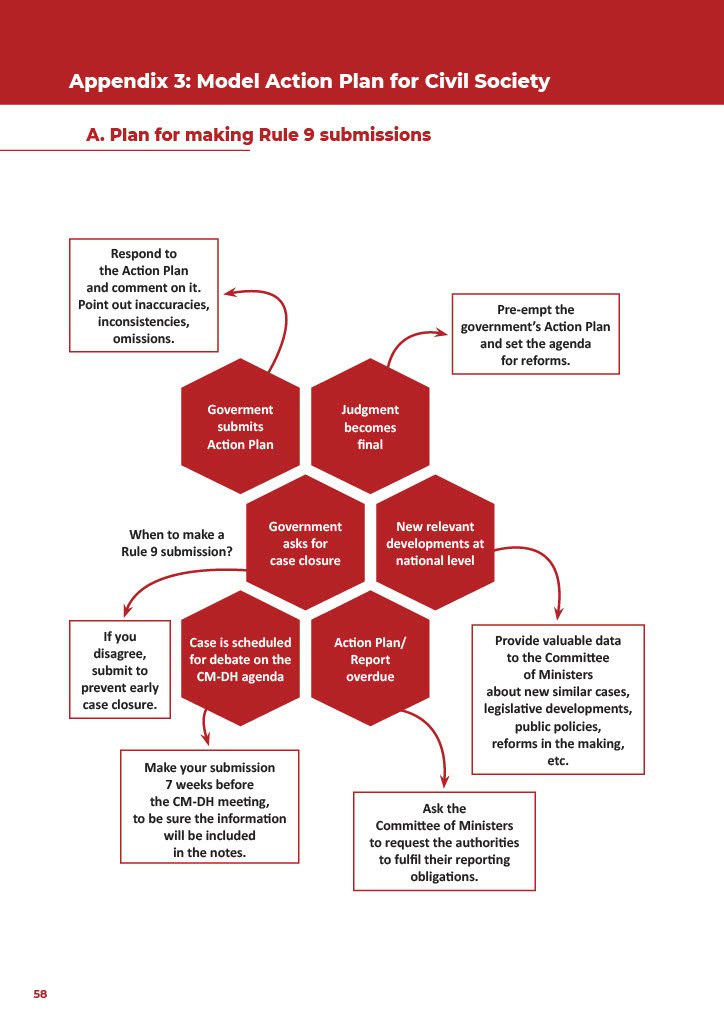
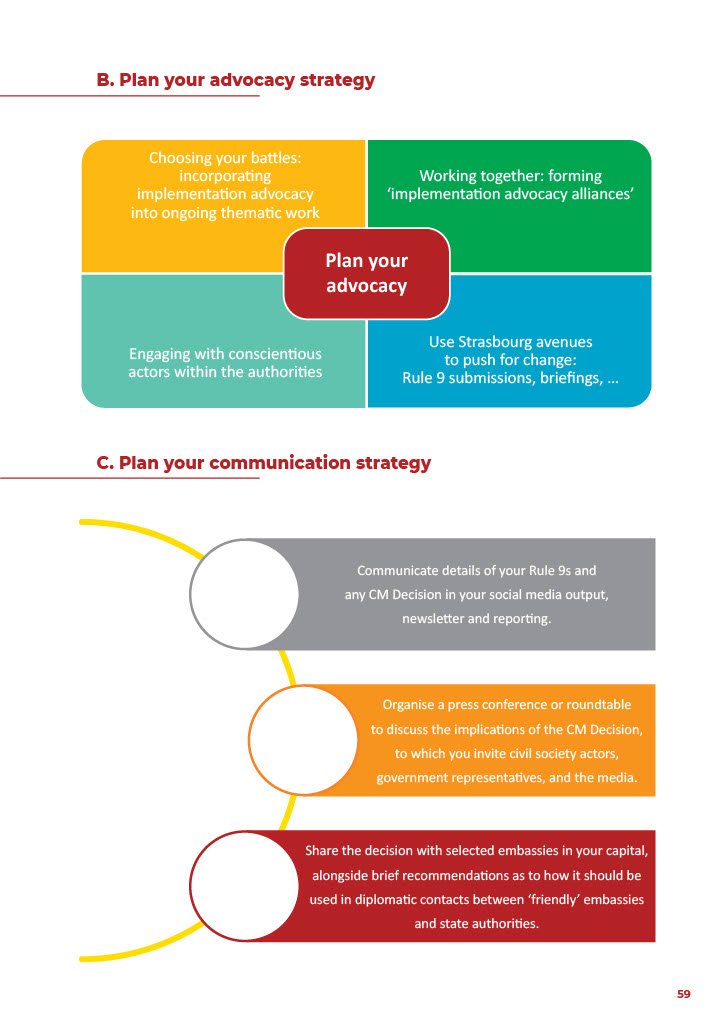


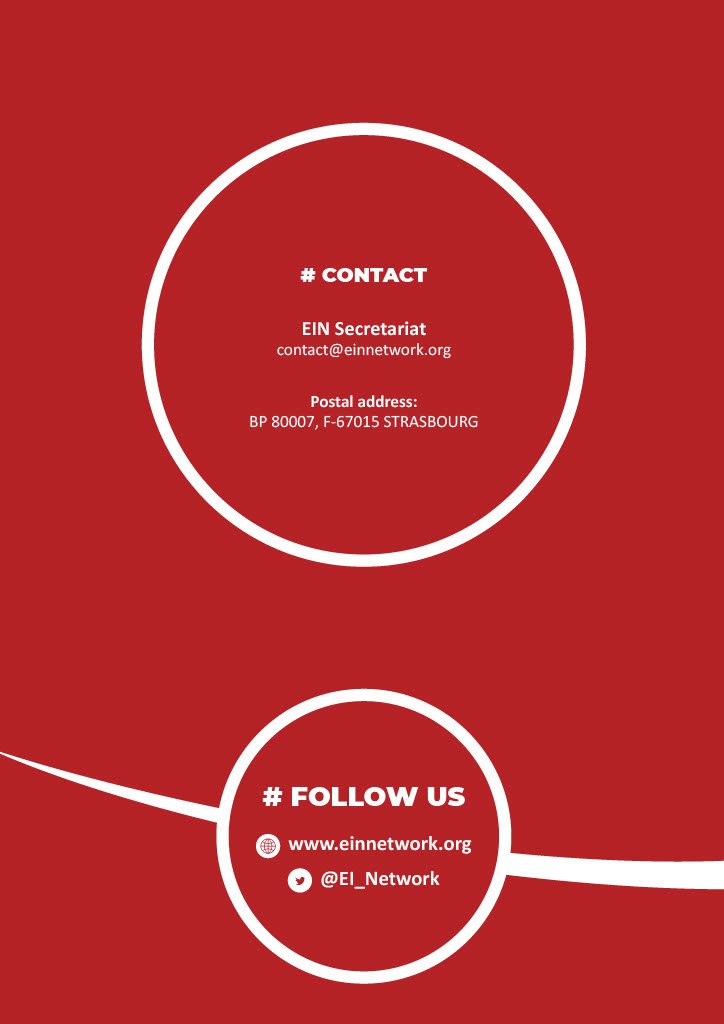
More information about the project via our news publication here.
Read our interview on TM and CM v Moldova with Violeta Andriuța from Women's Law Centre concerning domestic violence, which highlights the fact that VAW is a repetitive issue and incremental reform is needed to address it.



